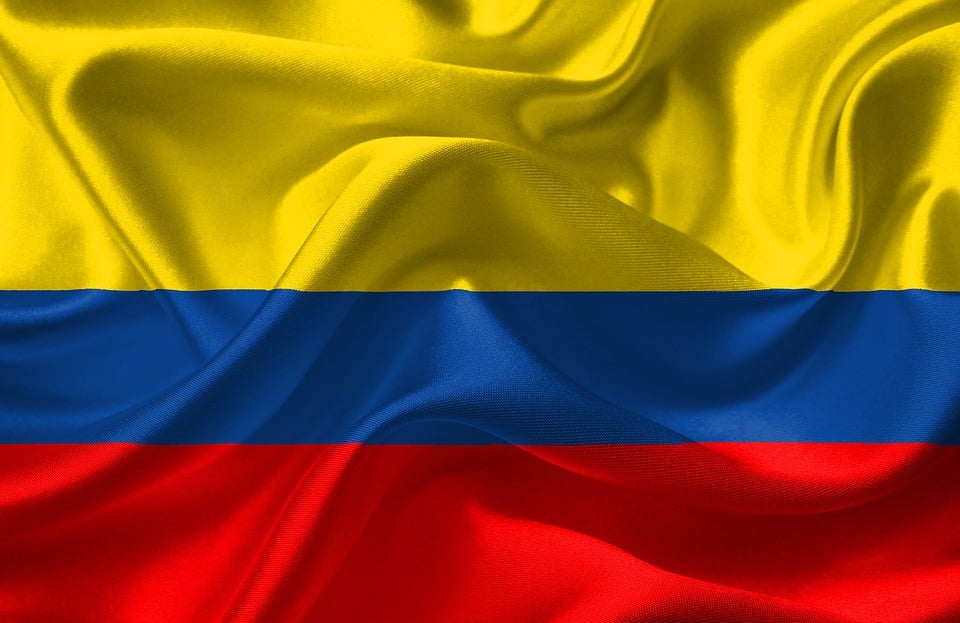NEXUS WORKSHOP

From September 16 to 18, 2024, the NEXUS workshop — Nature x Value Webs x Territories, Biodiversity-based value webs and territorial bioeconomy systems in Colombia: perspectives from practice and research, was held as a participatory space to connect and create valuable networks between territorial productive initiatives based on the use of biodiversity, the scientific community and institutional actors of the bioeconomy. Here you will find detailed information about the workshop and its results.
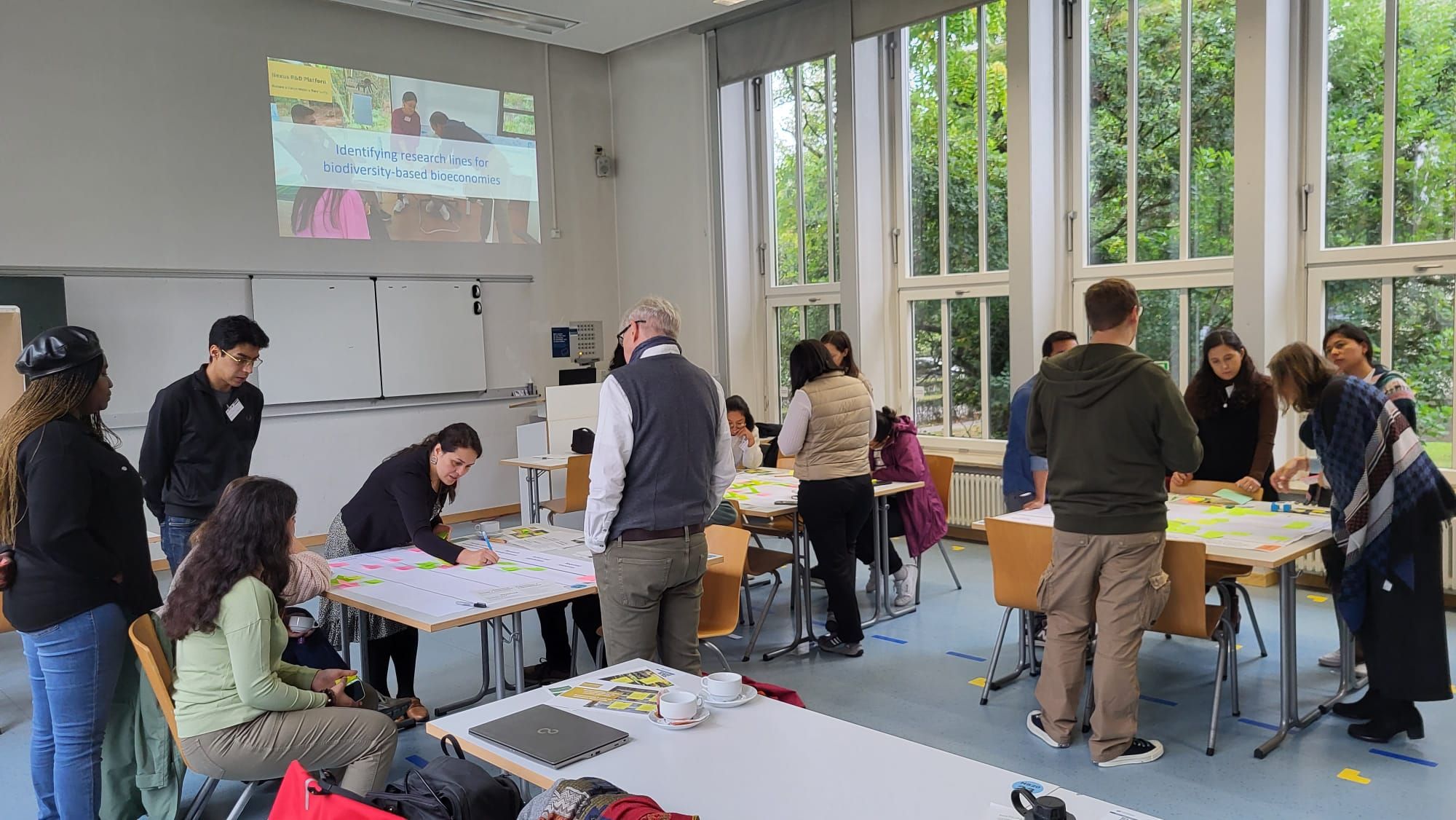
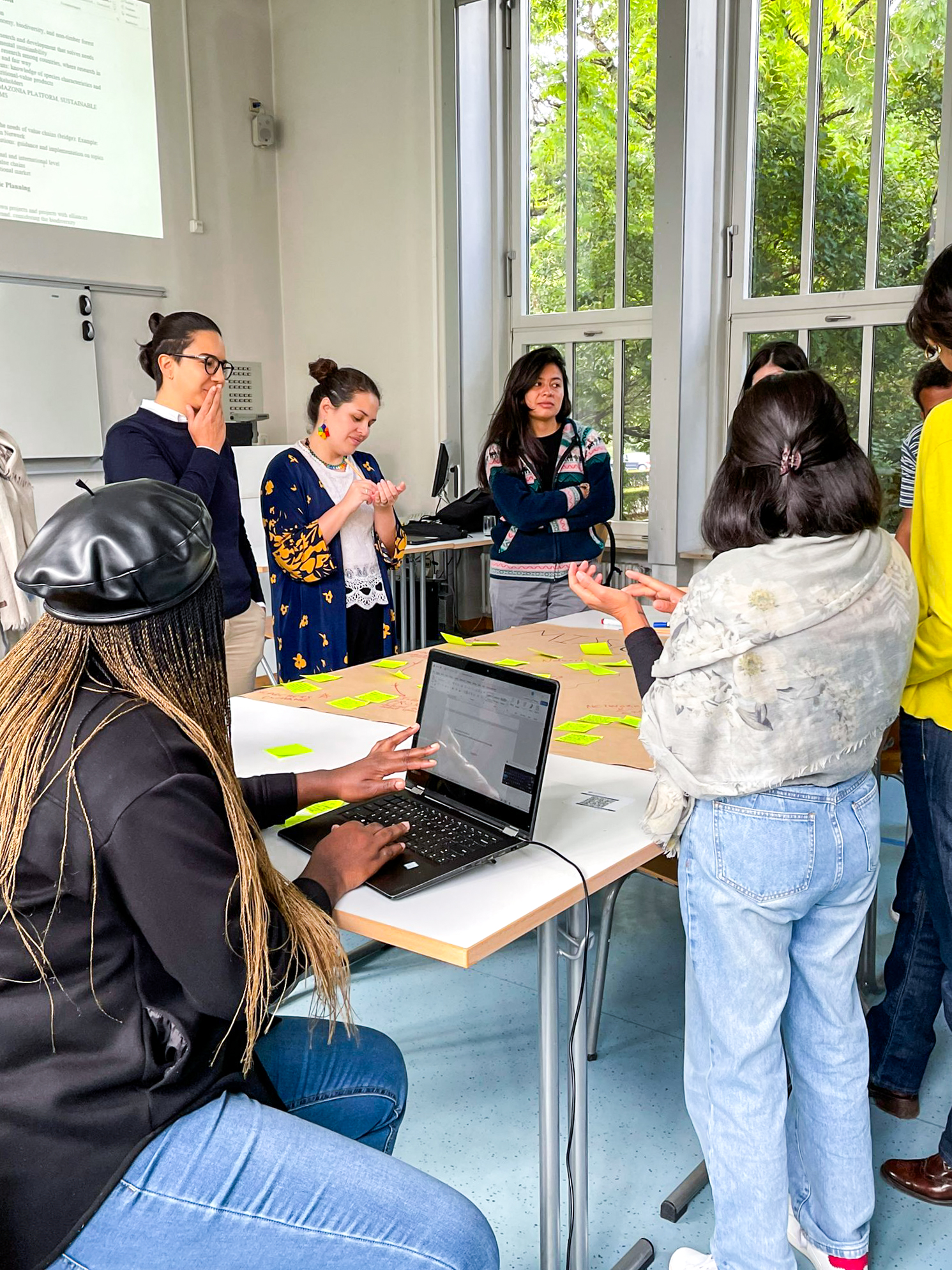
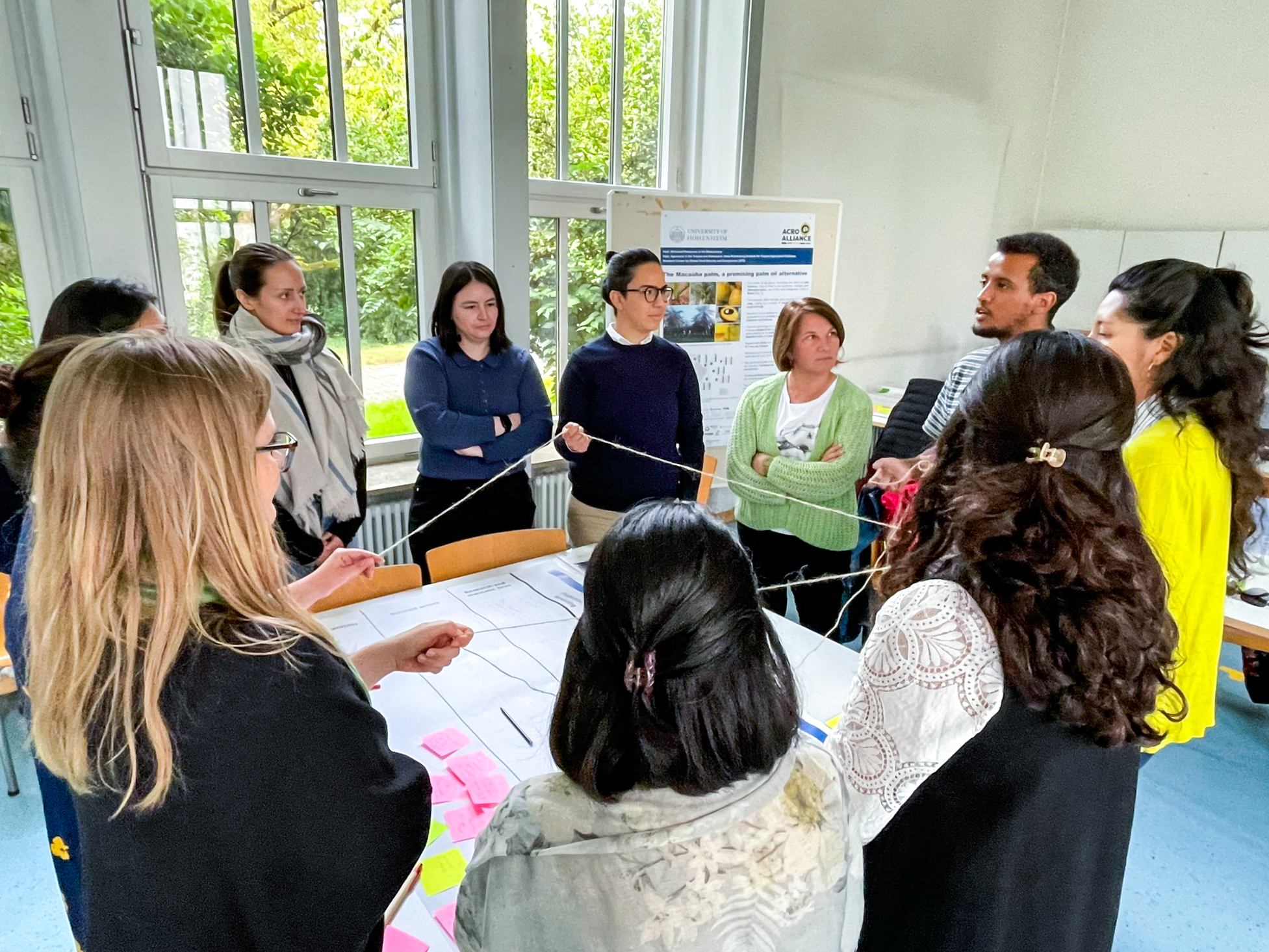
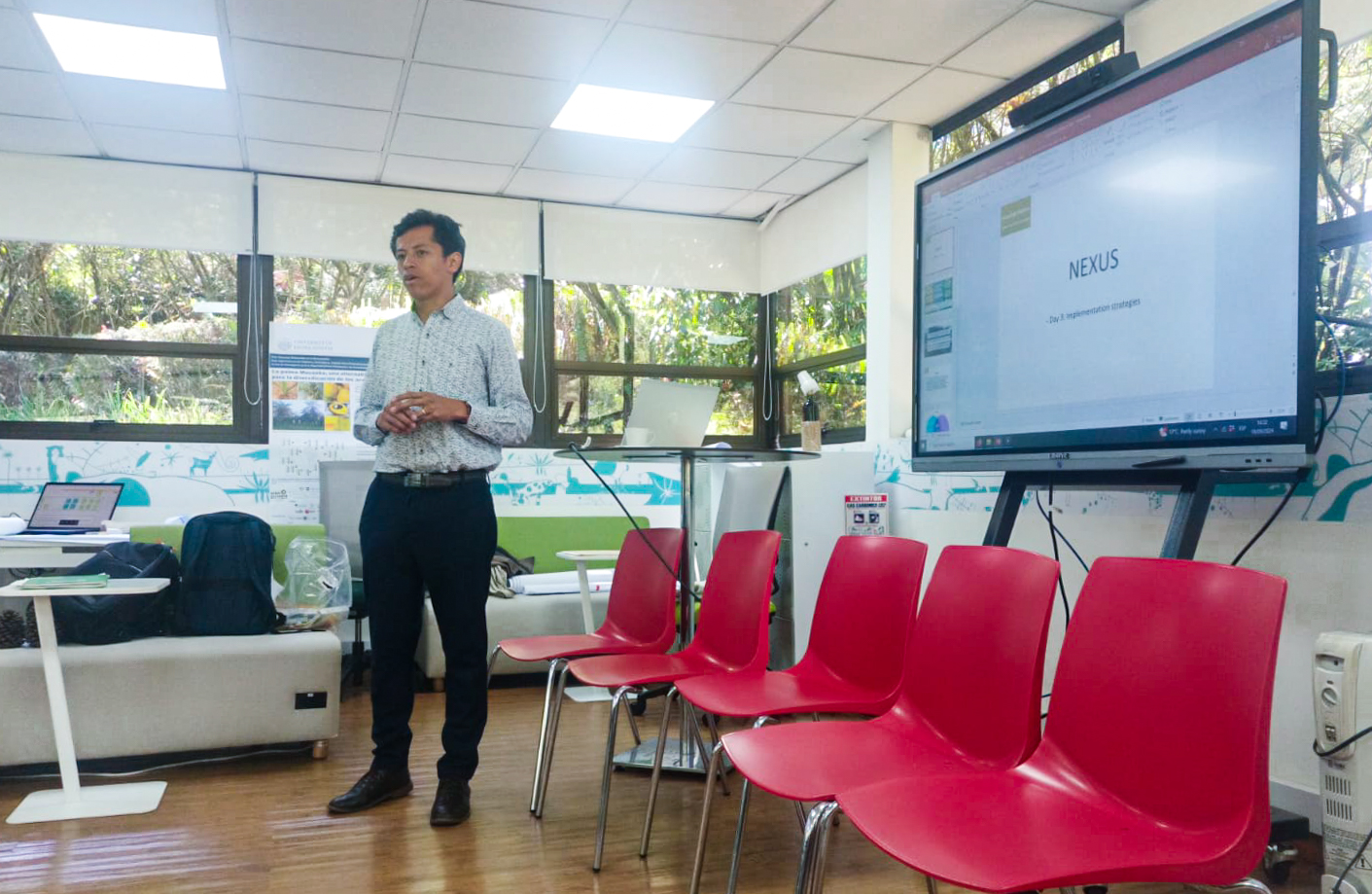
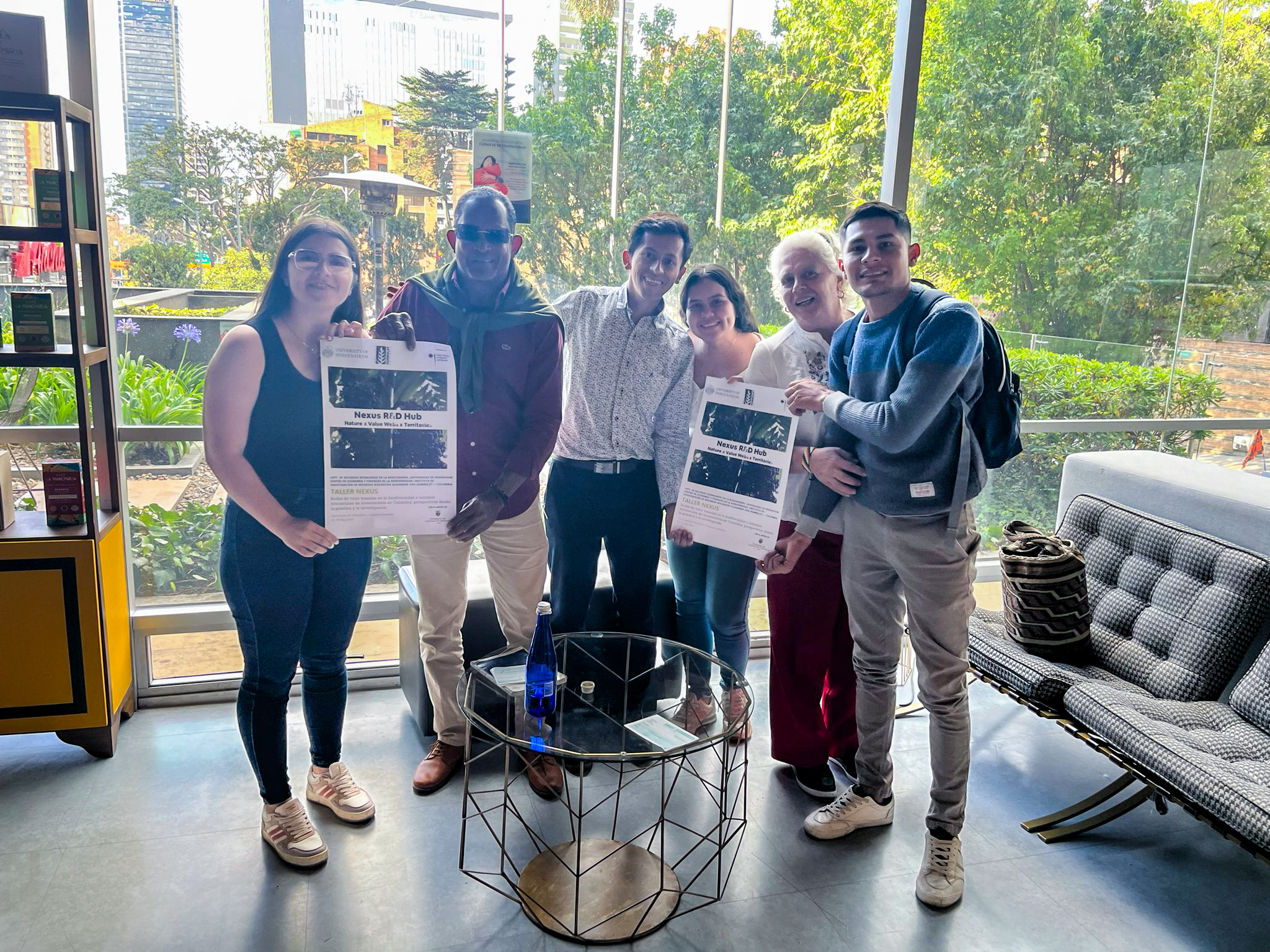
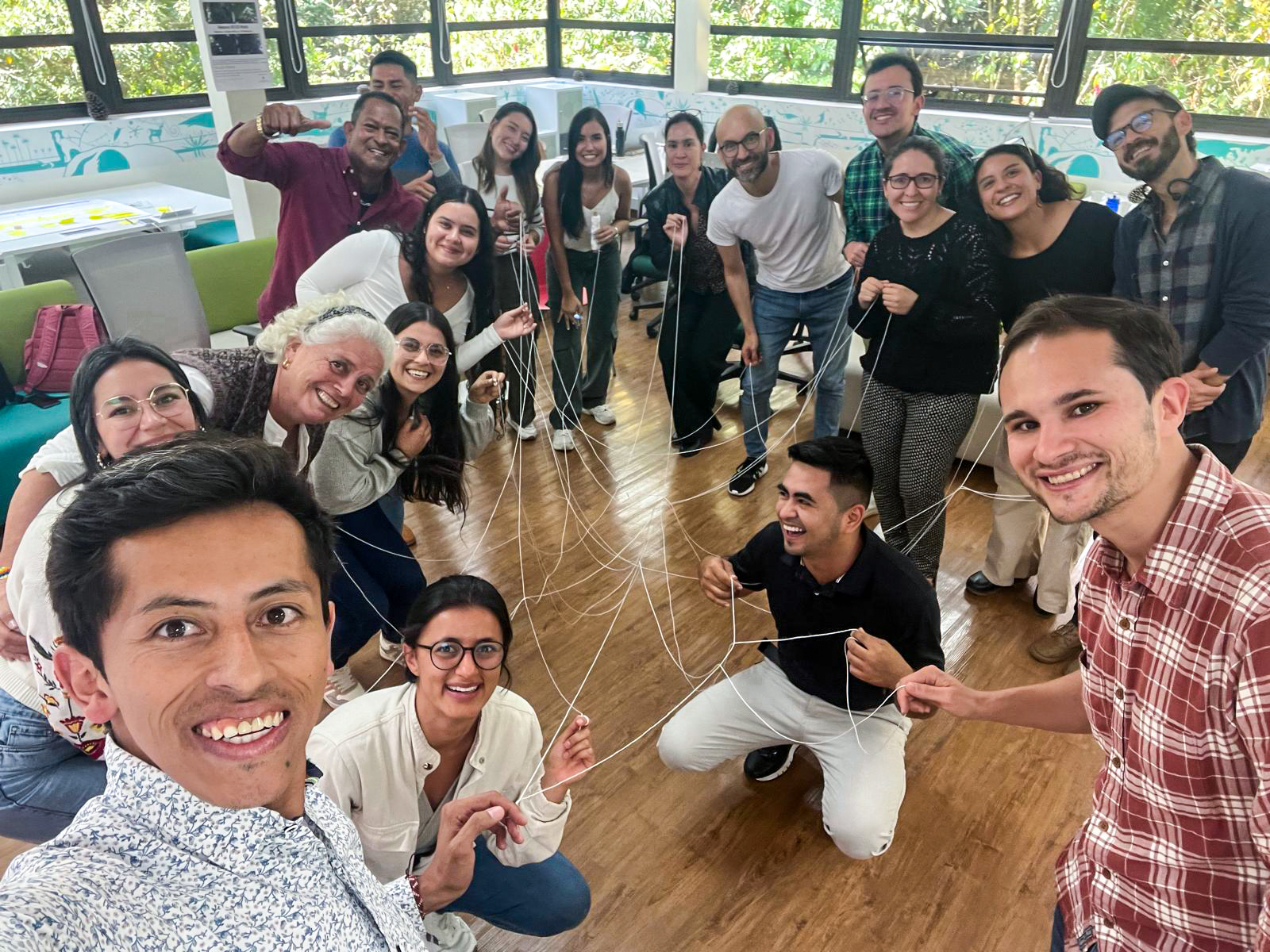
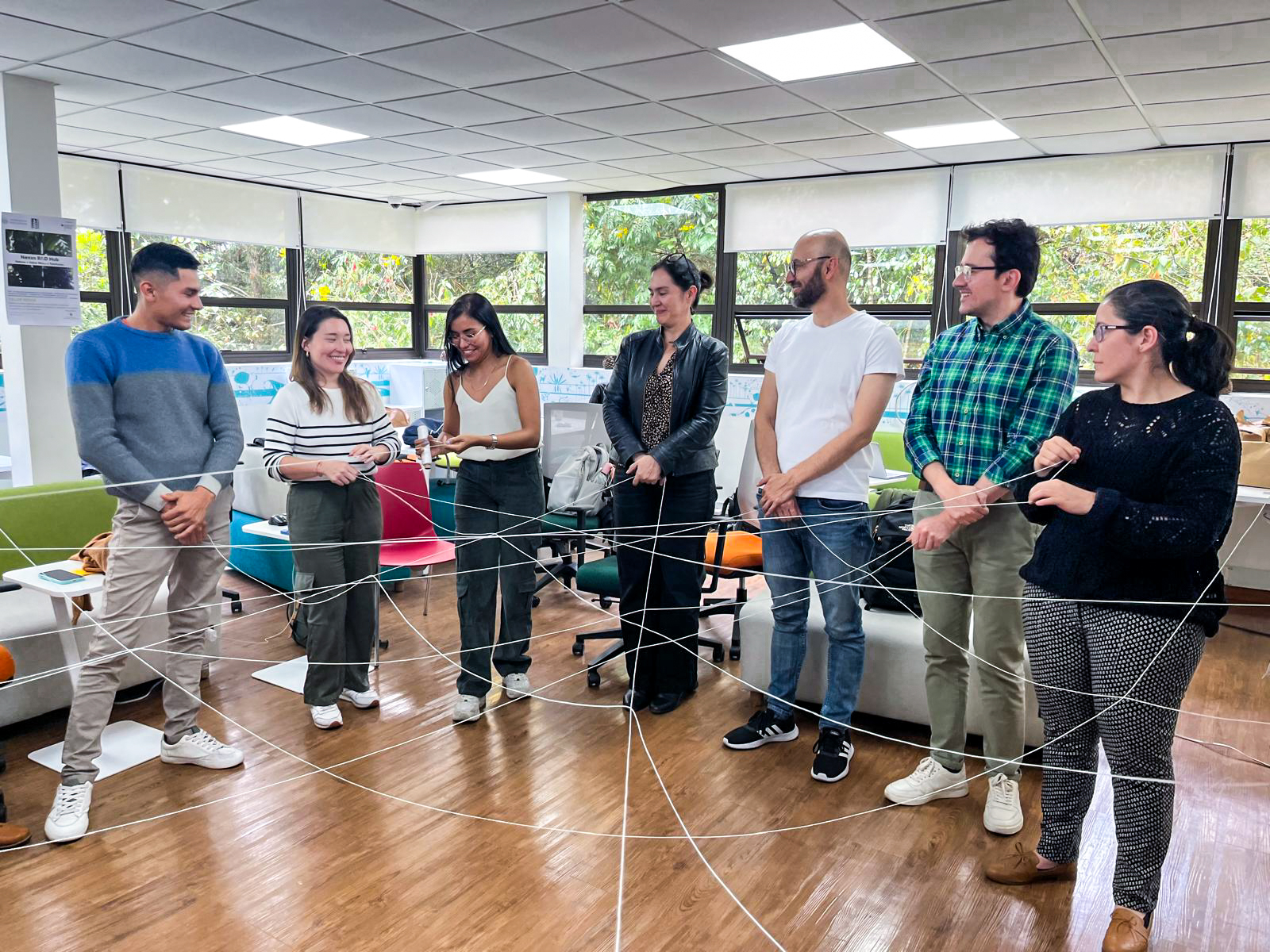
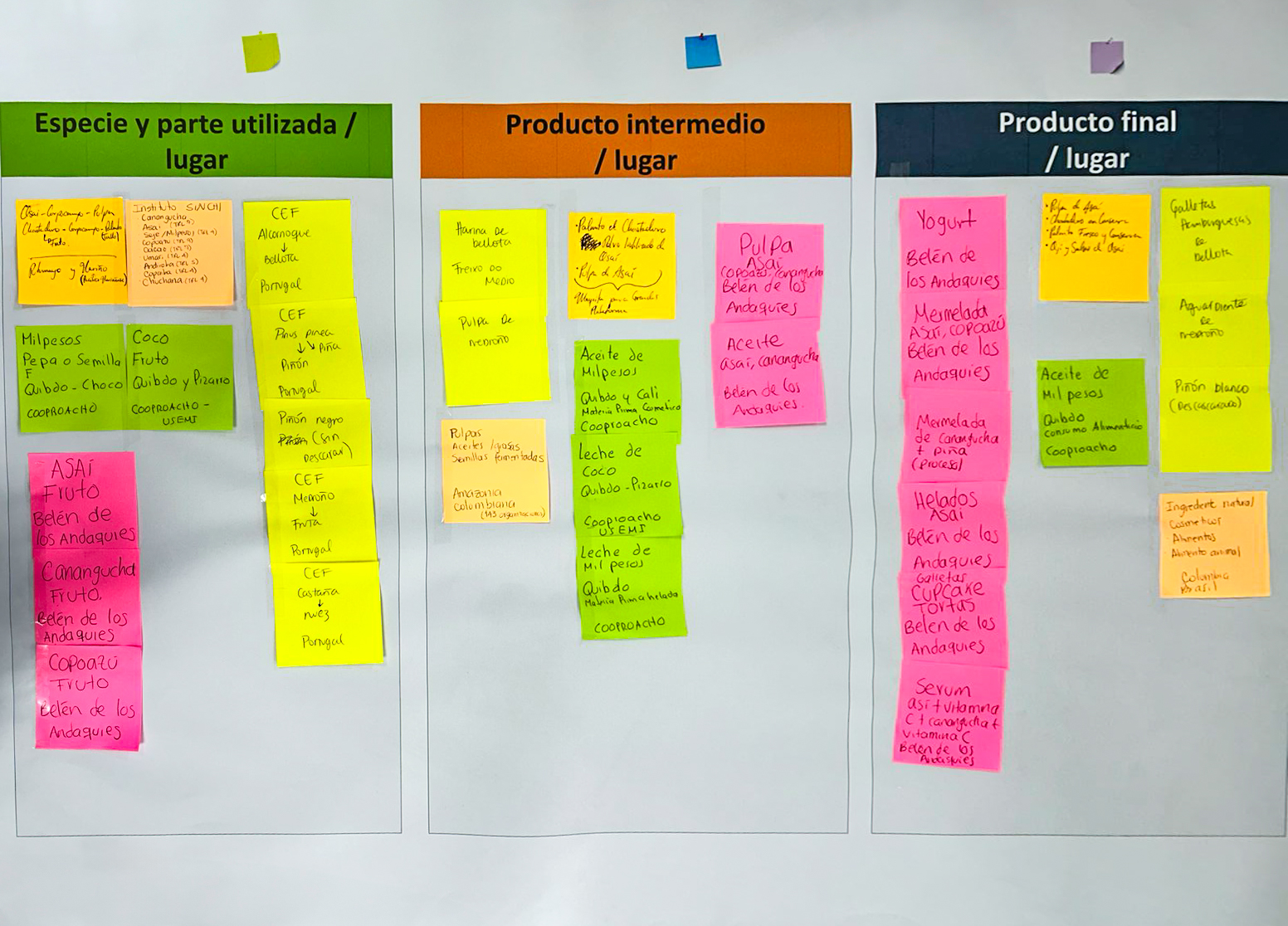
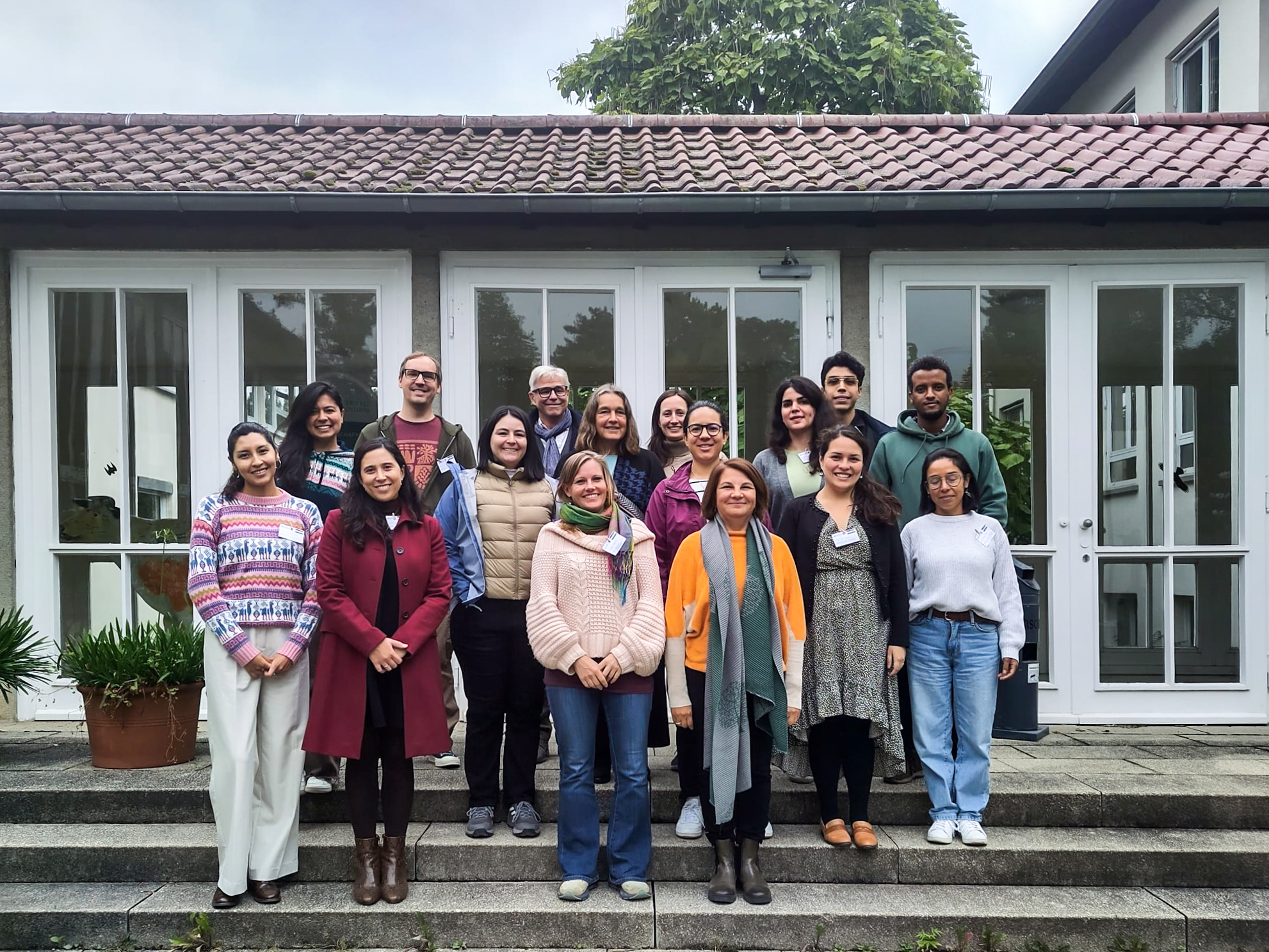
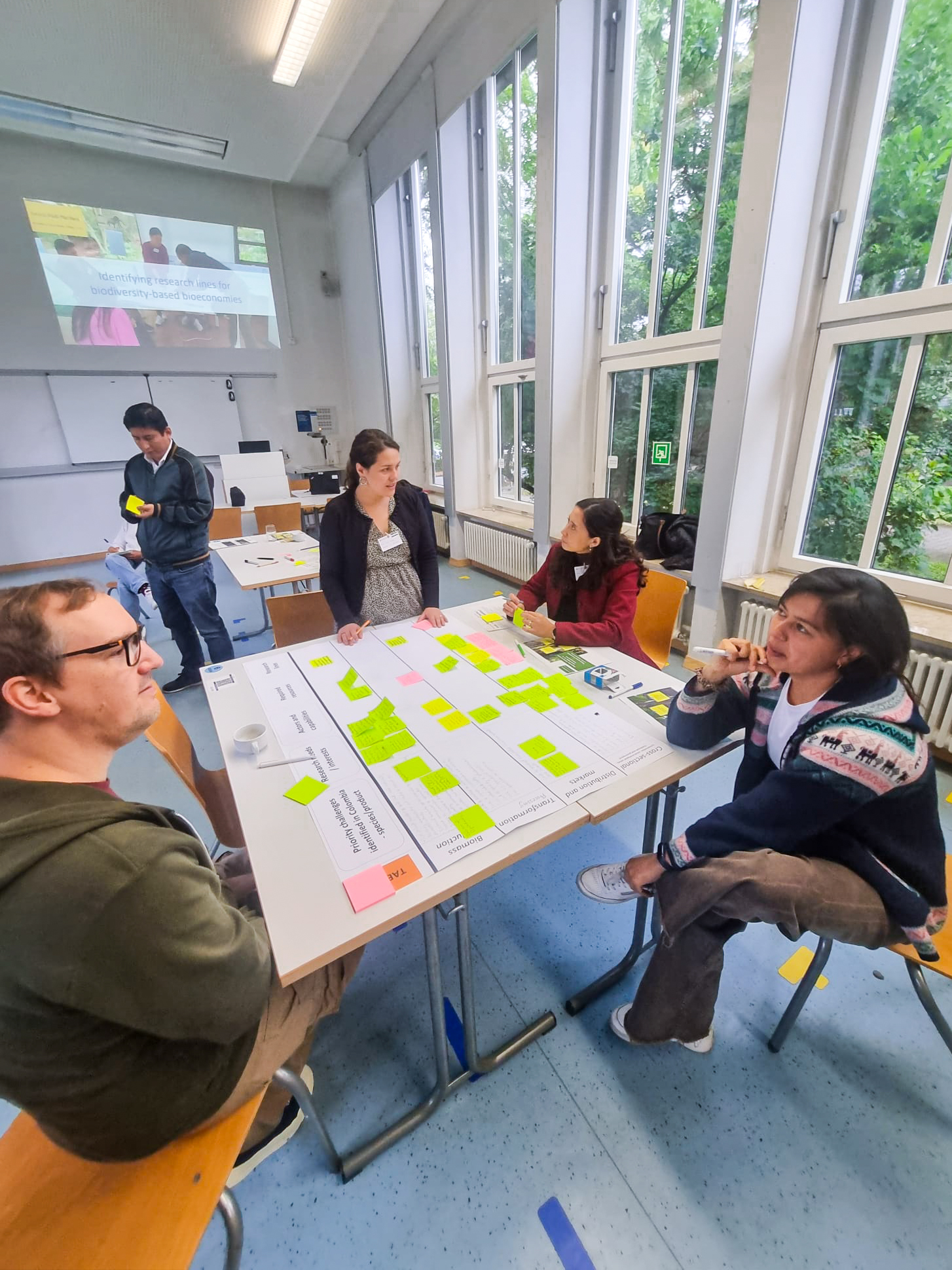
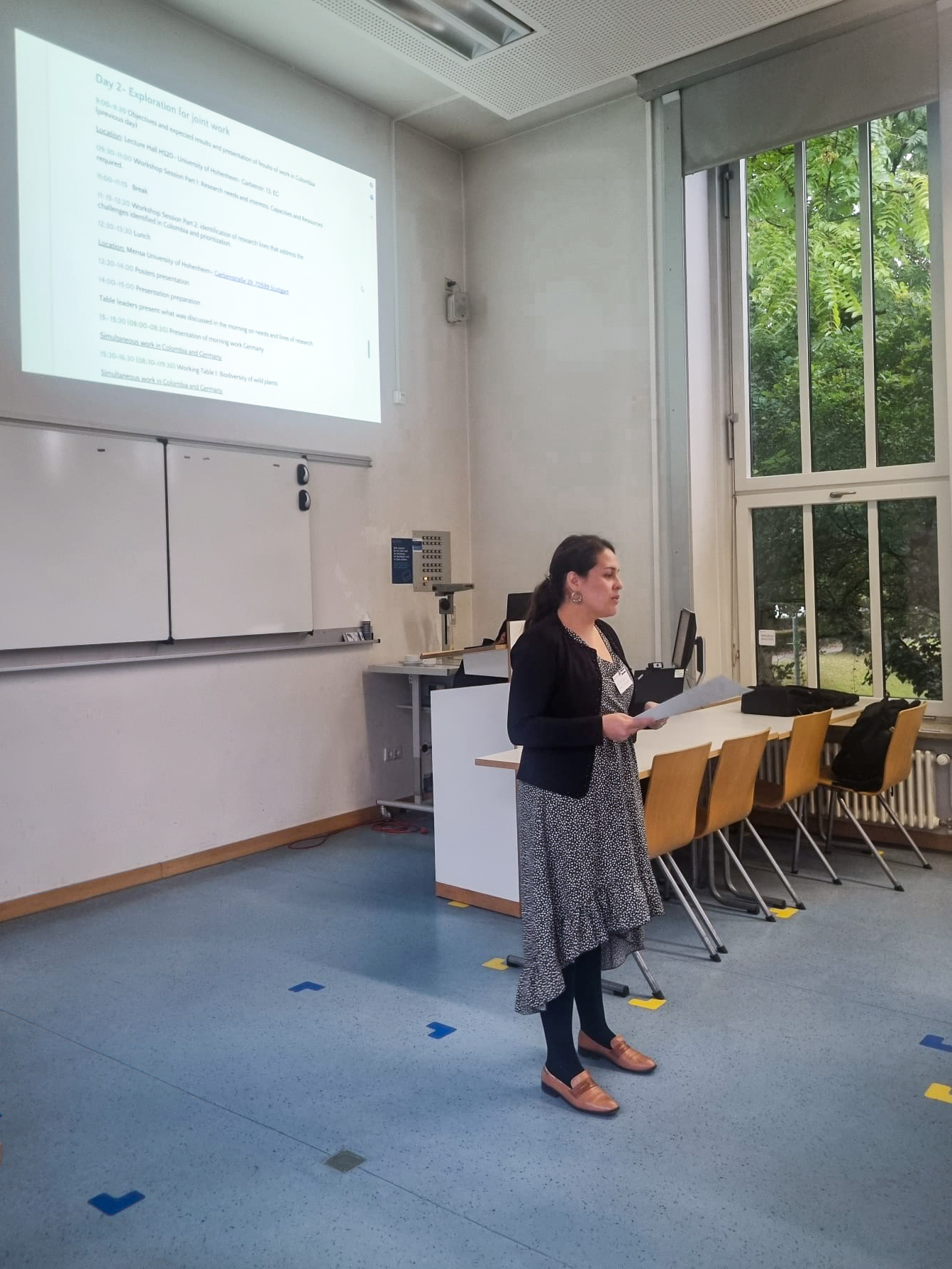
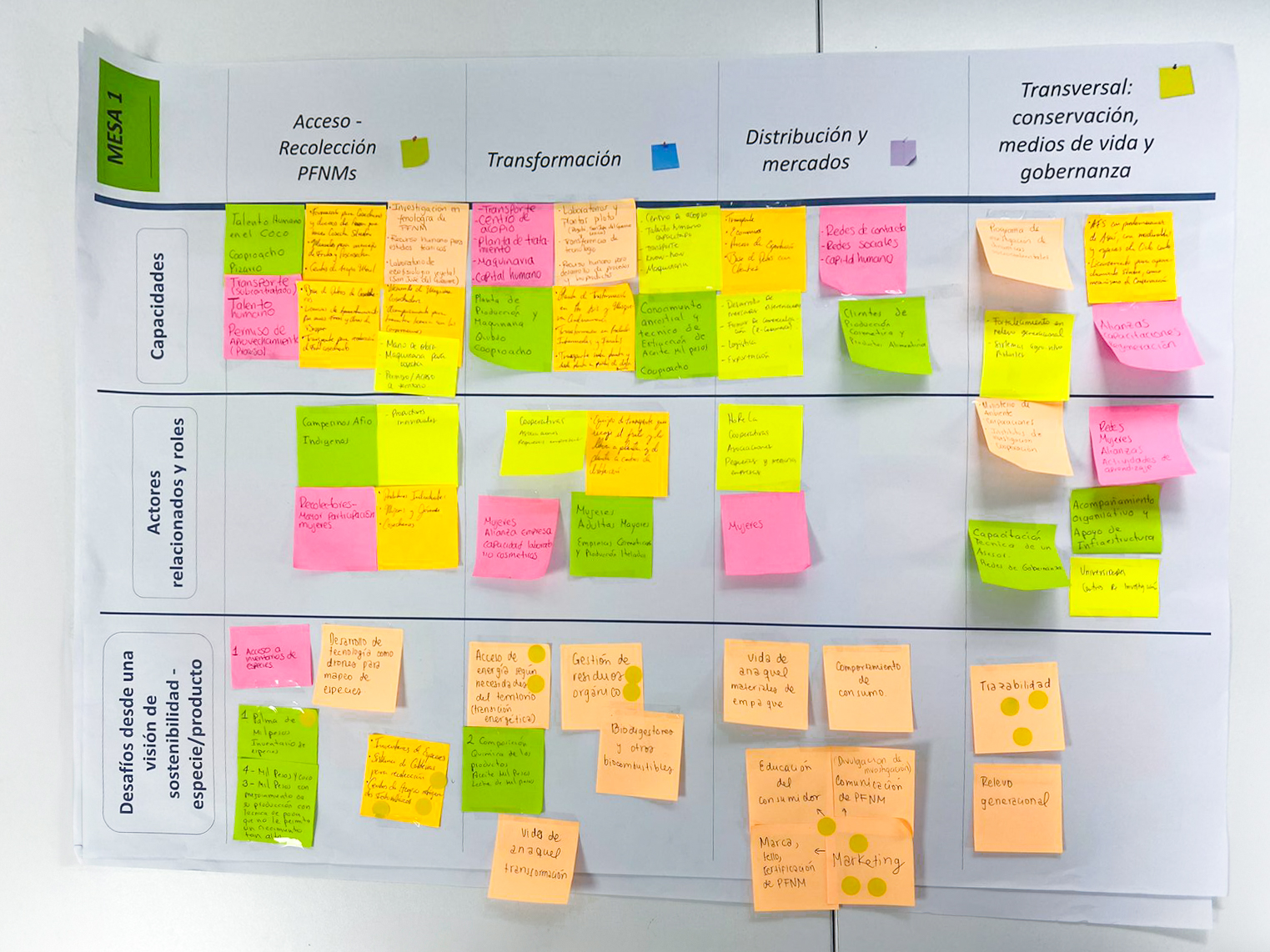
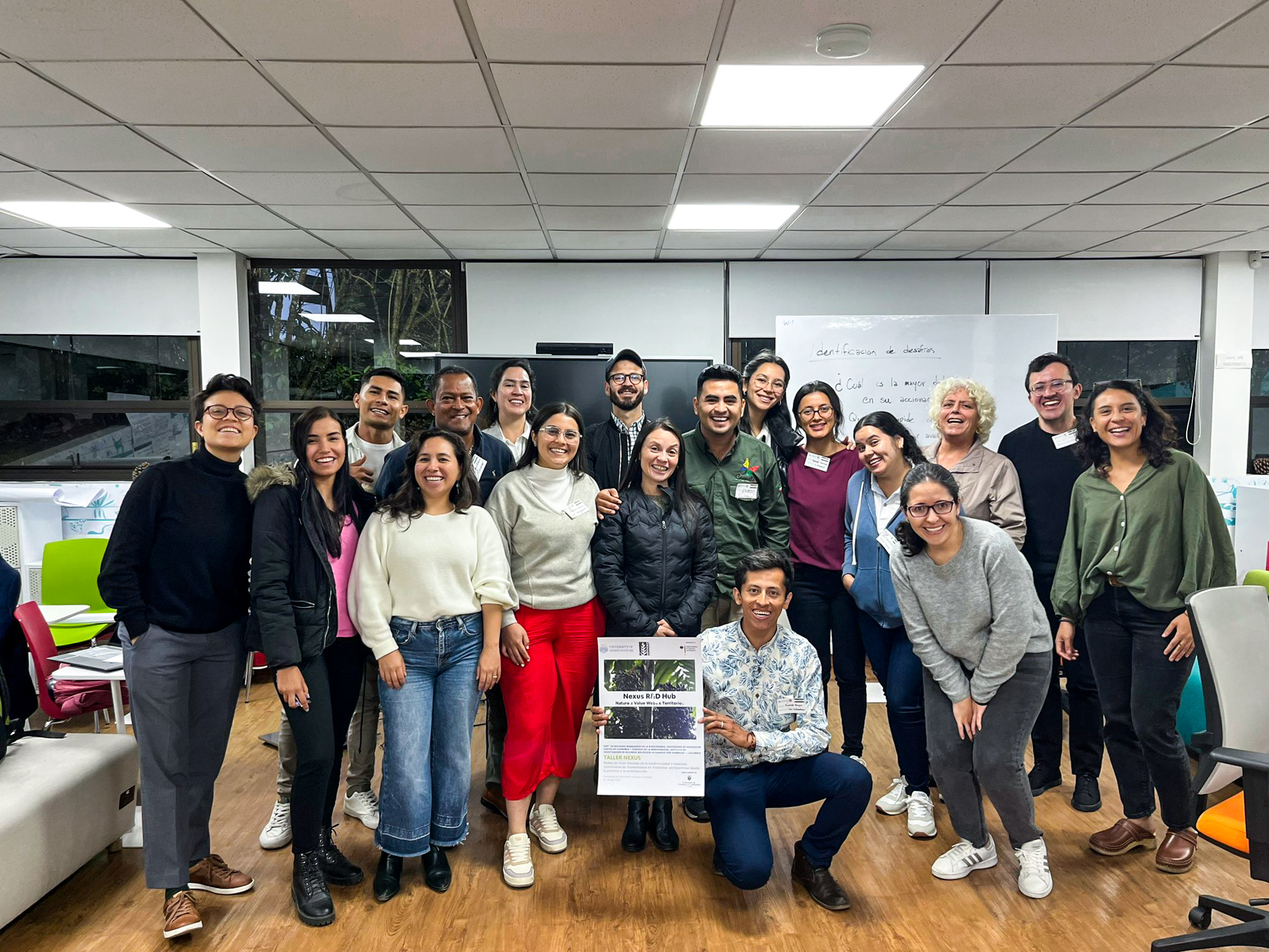
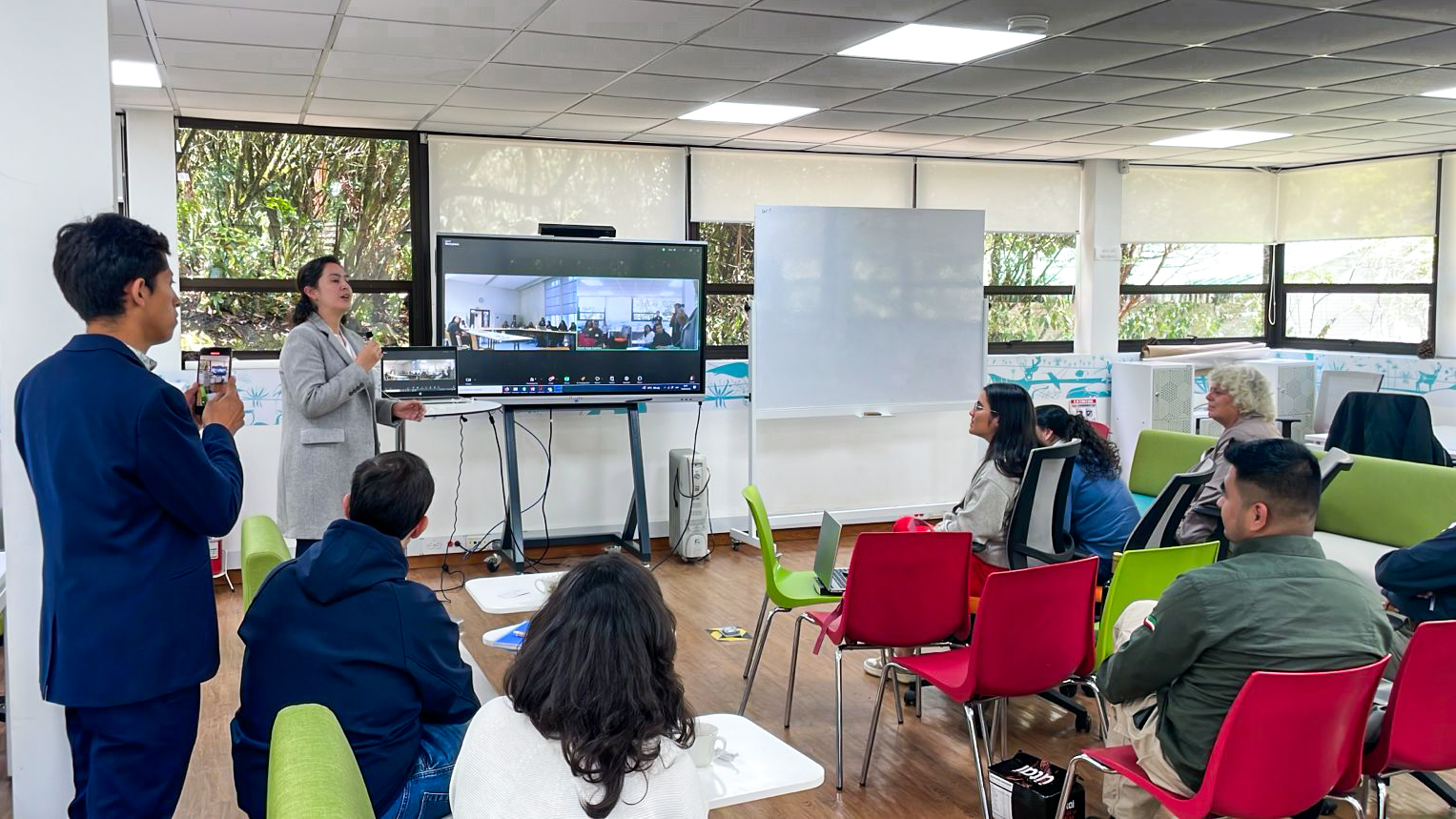
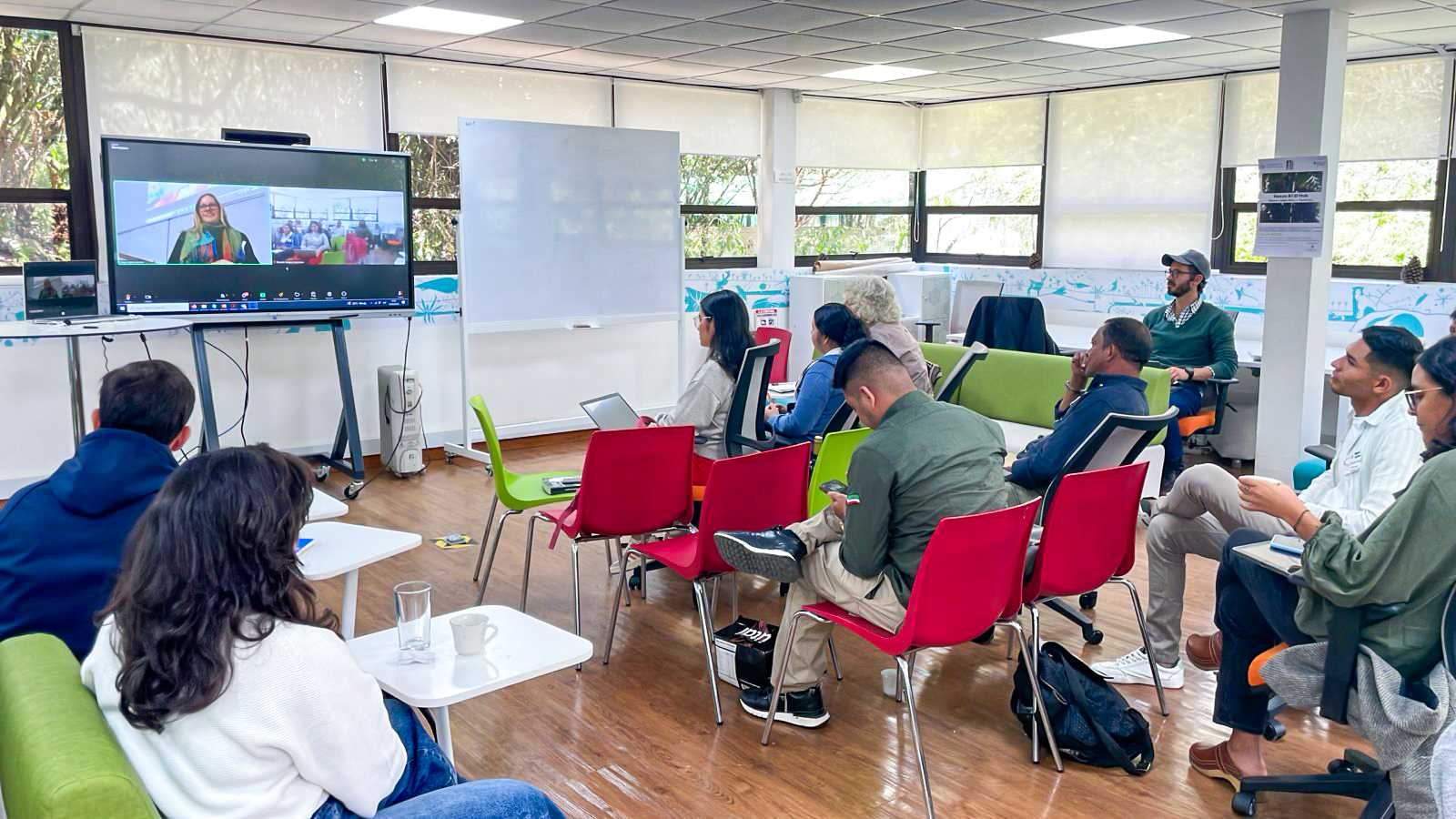
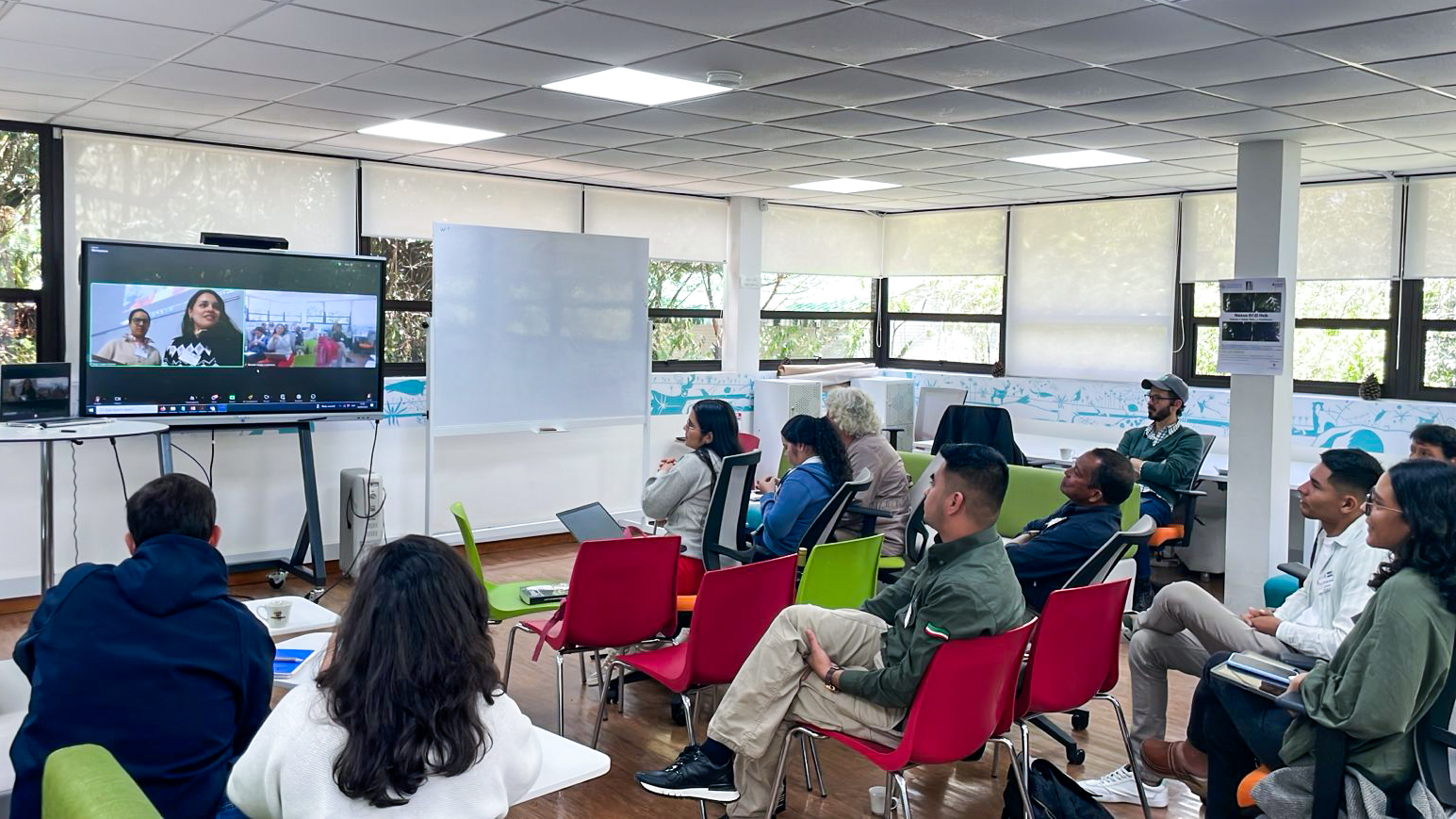
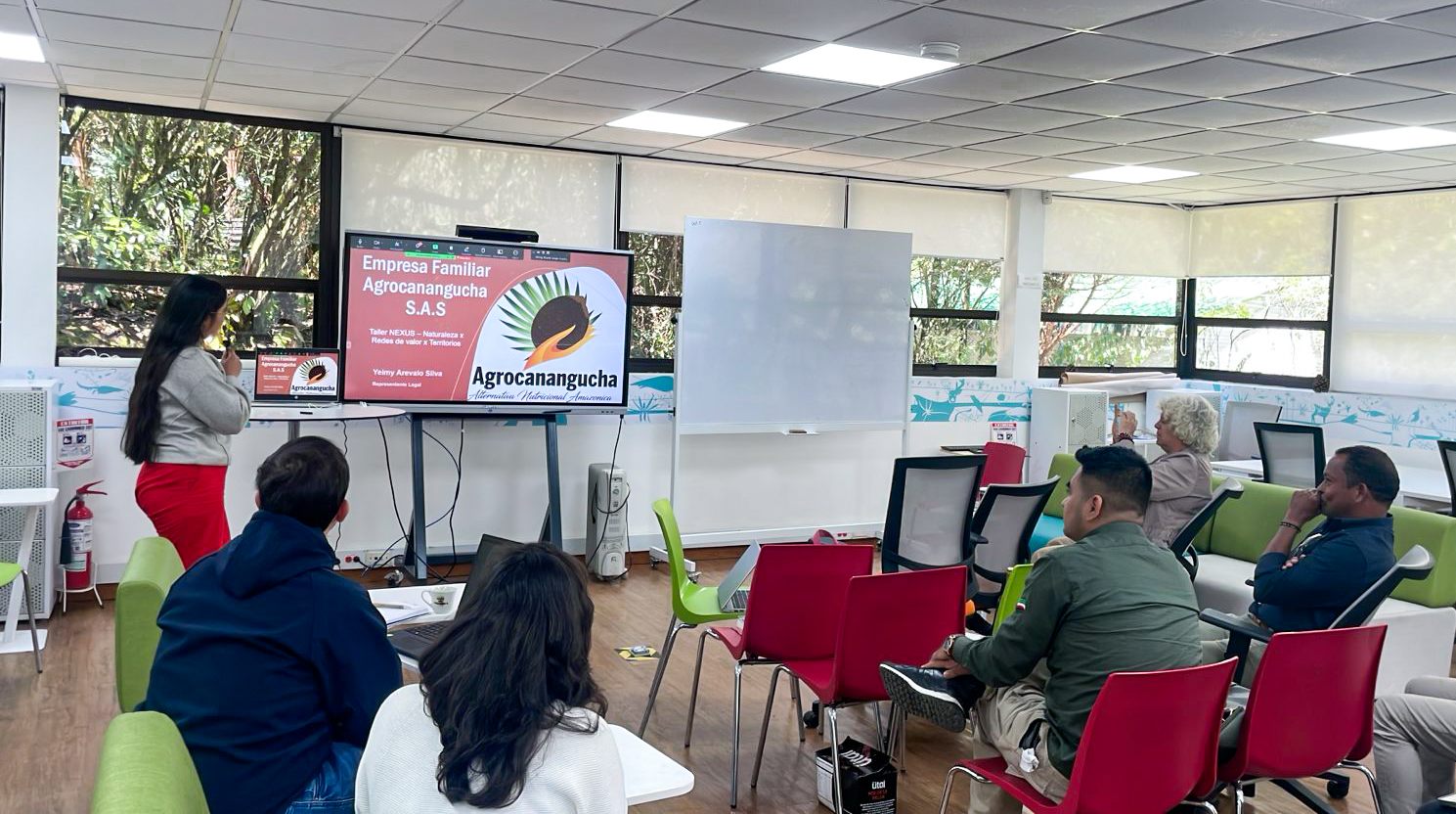
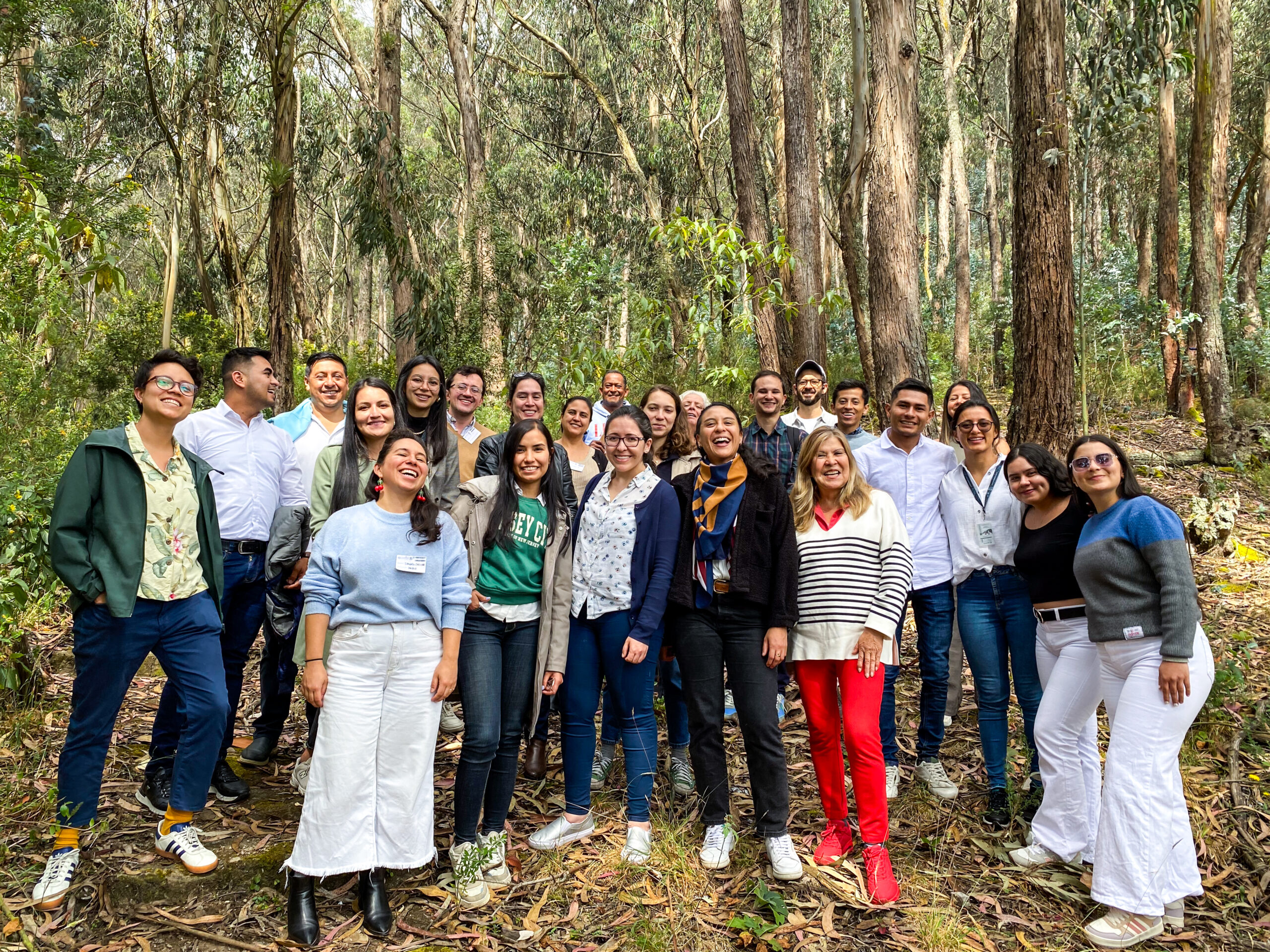
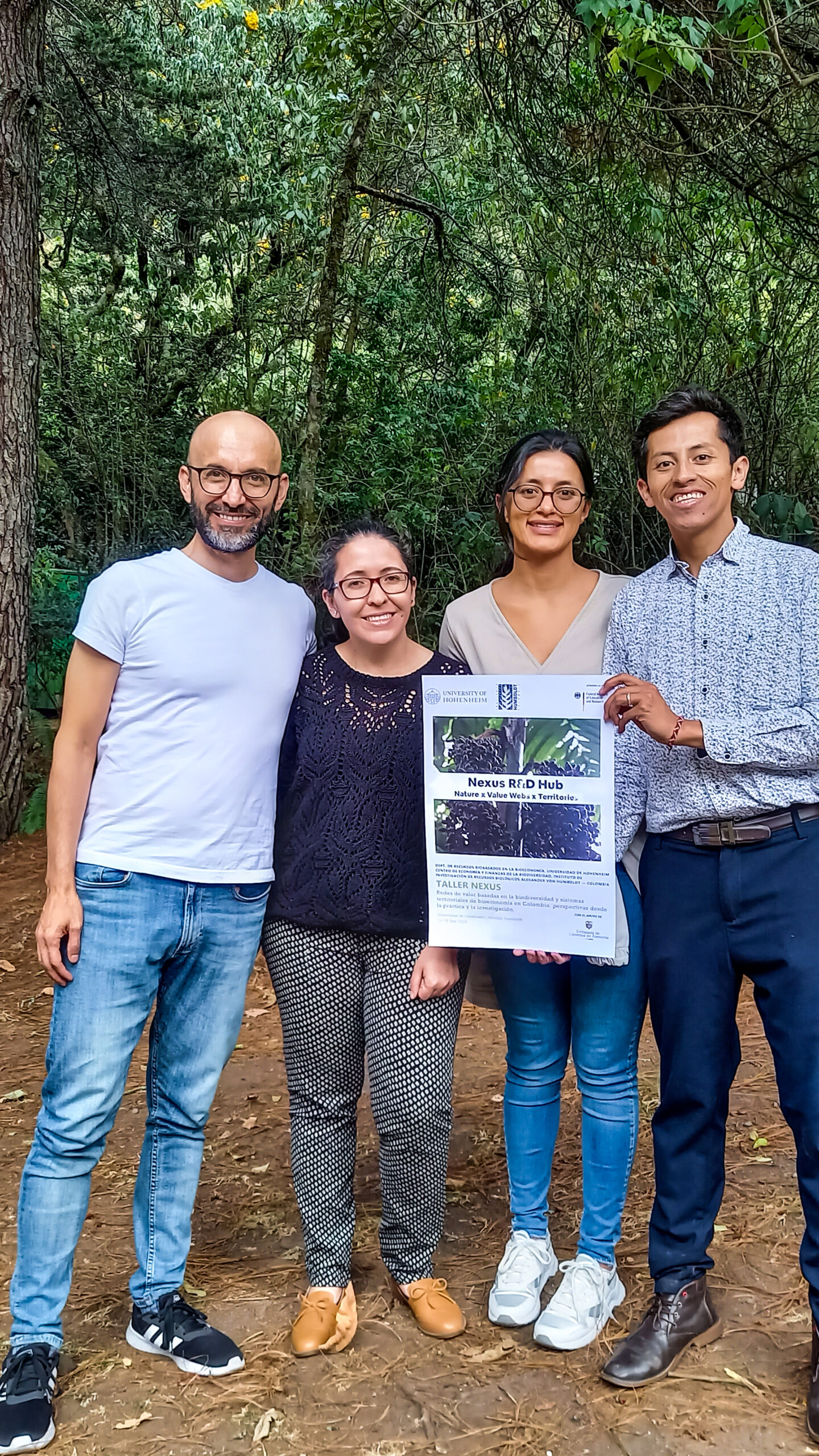
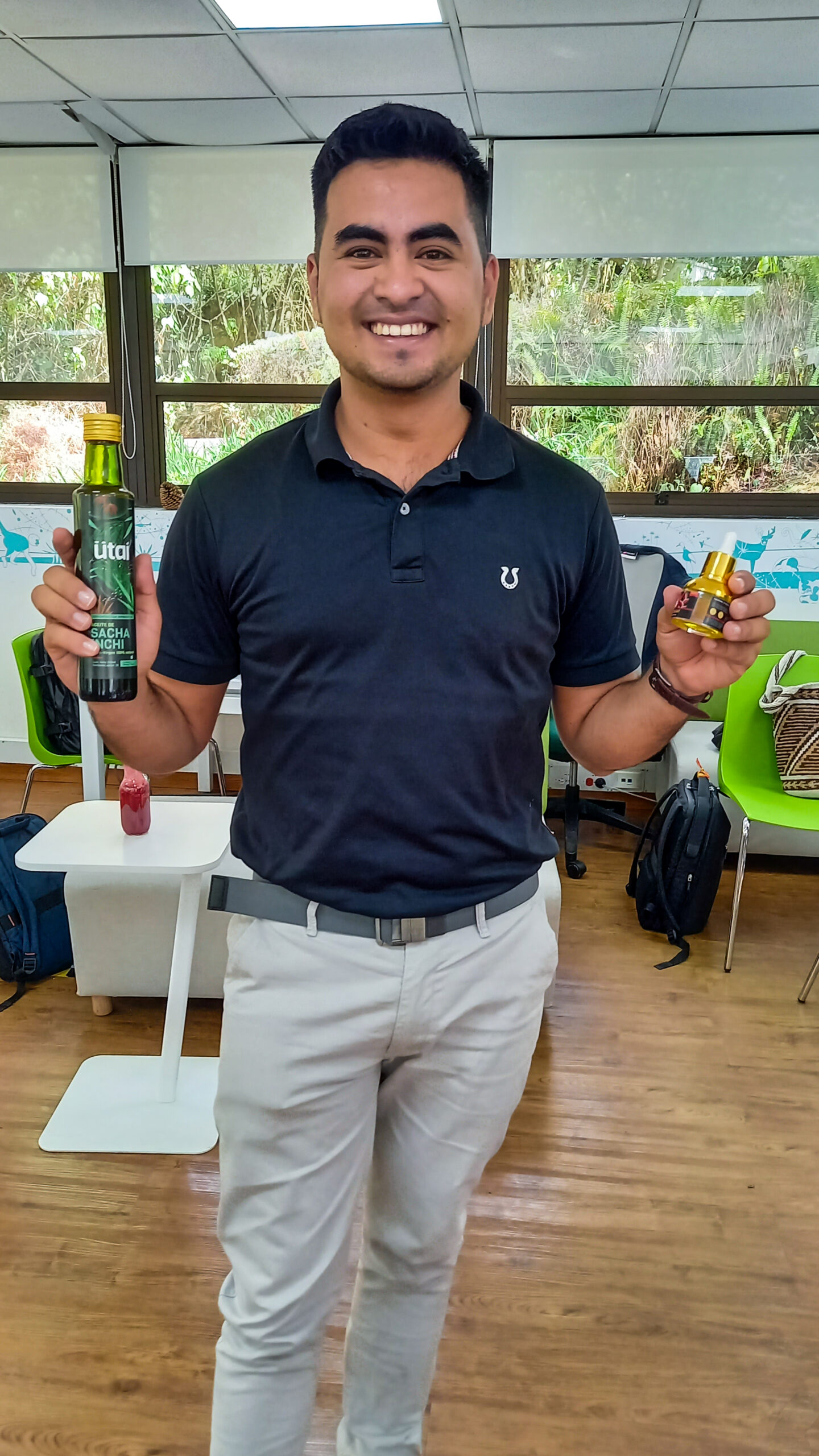
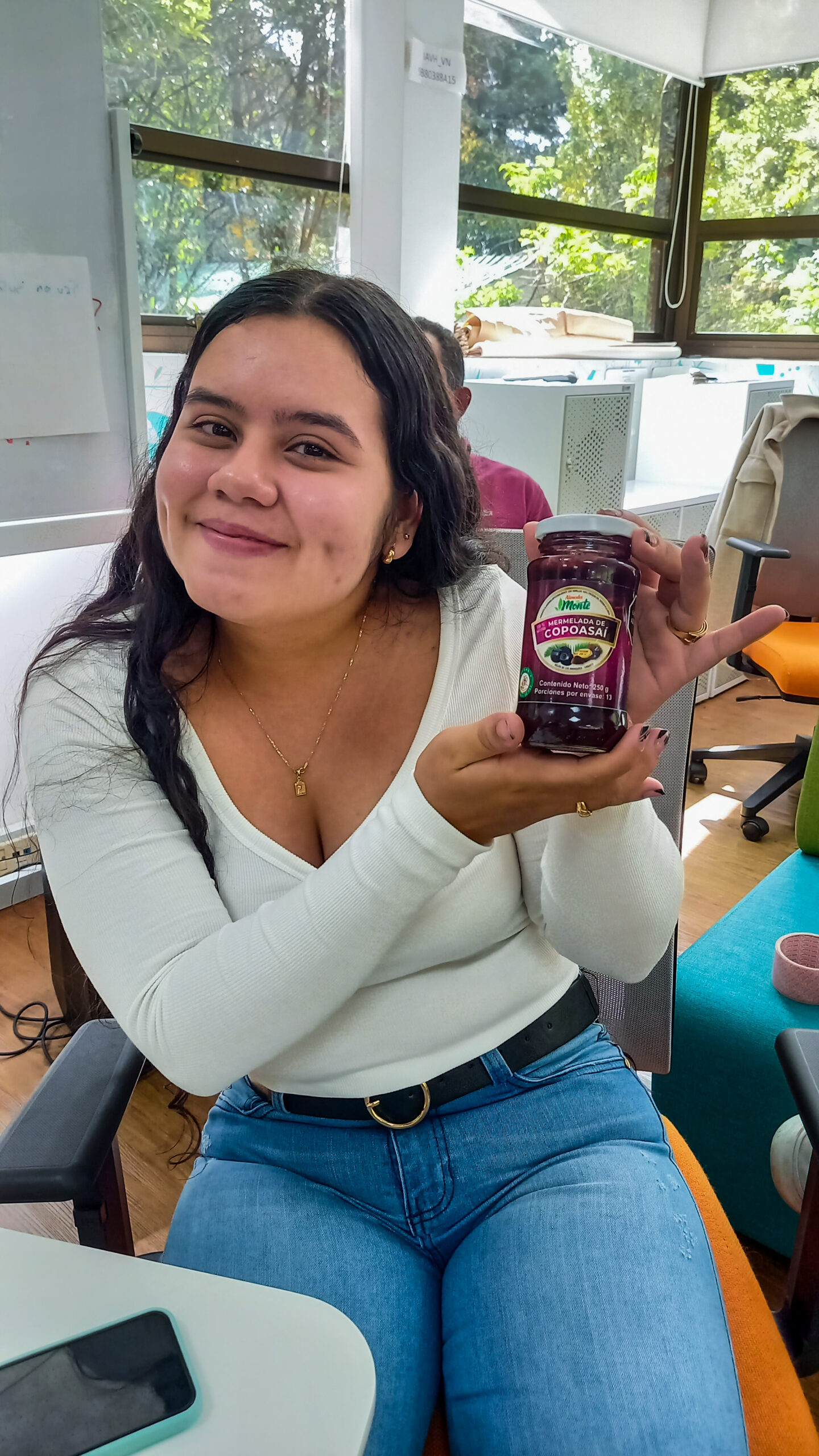
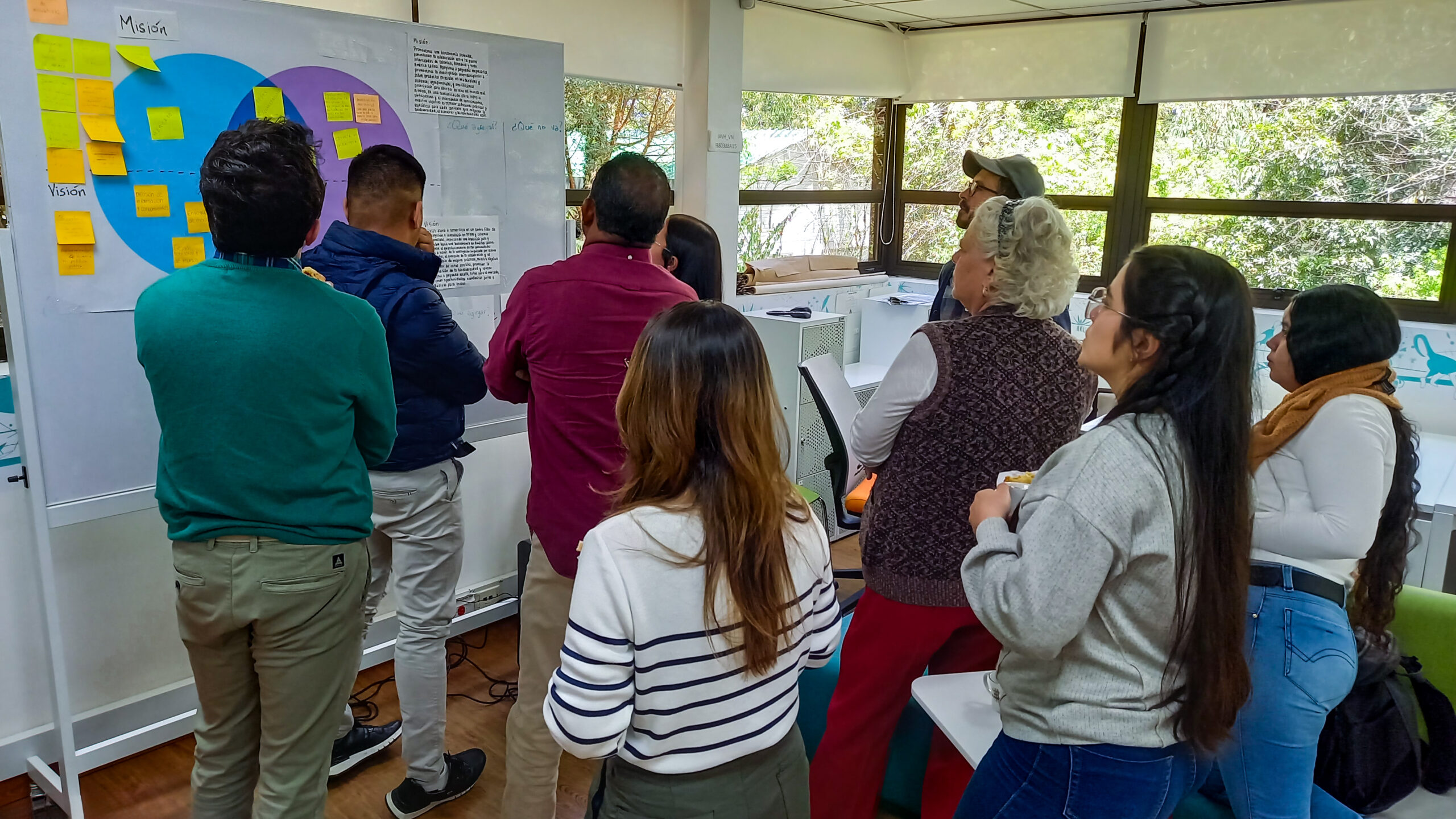
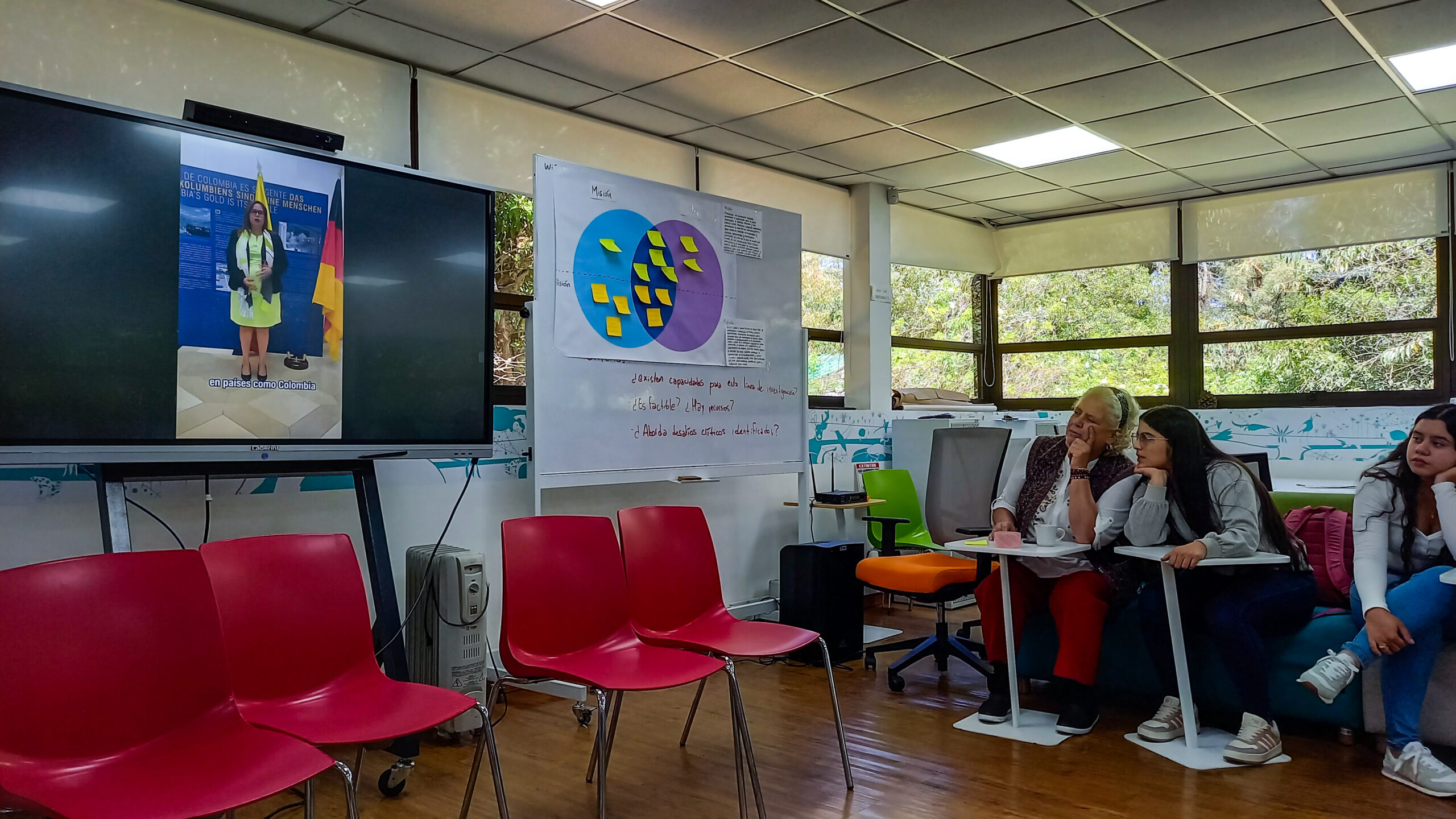
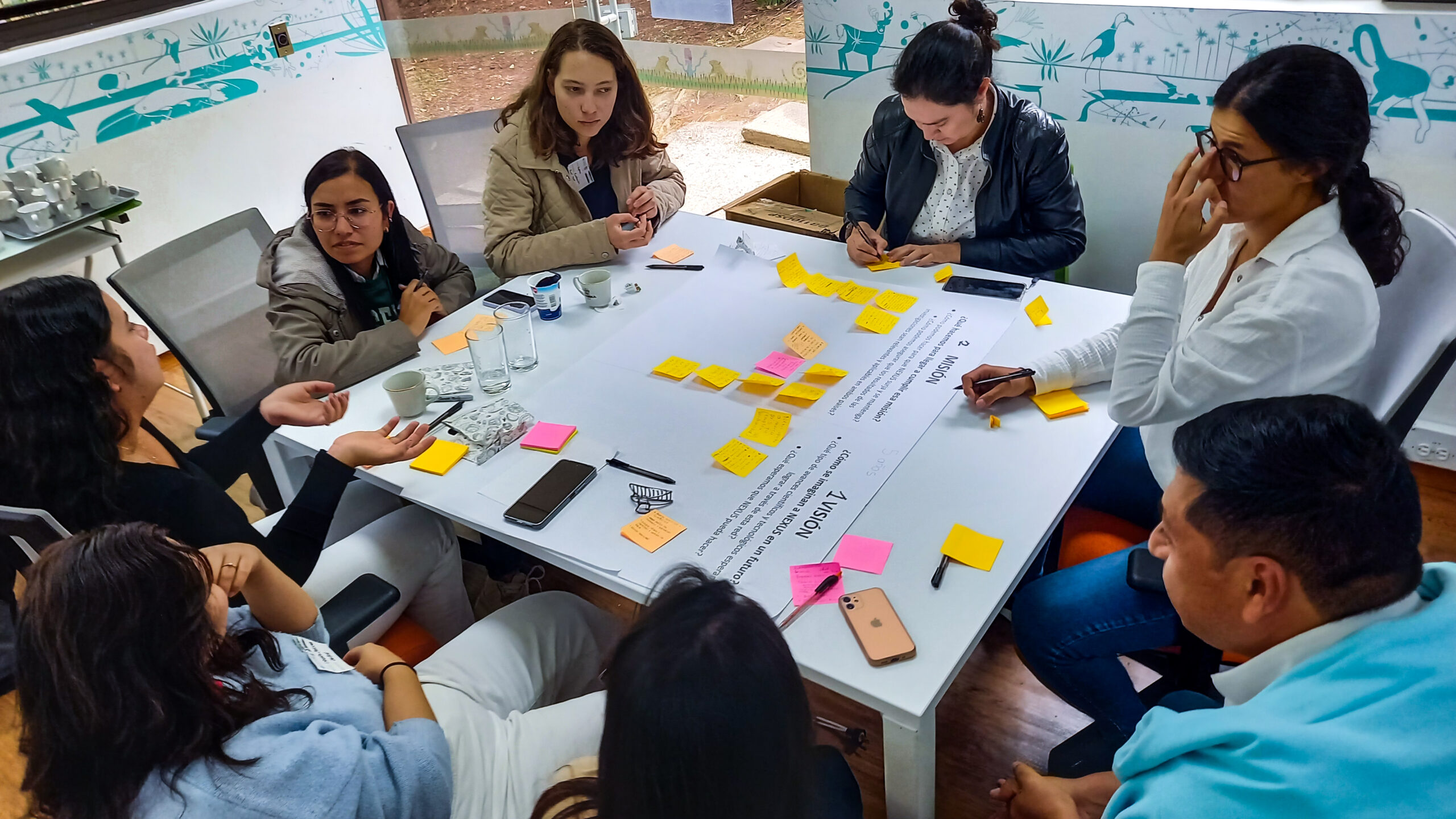
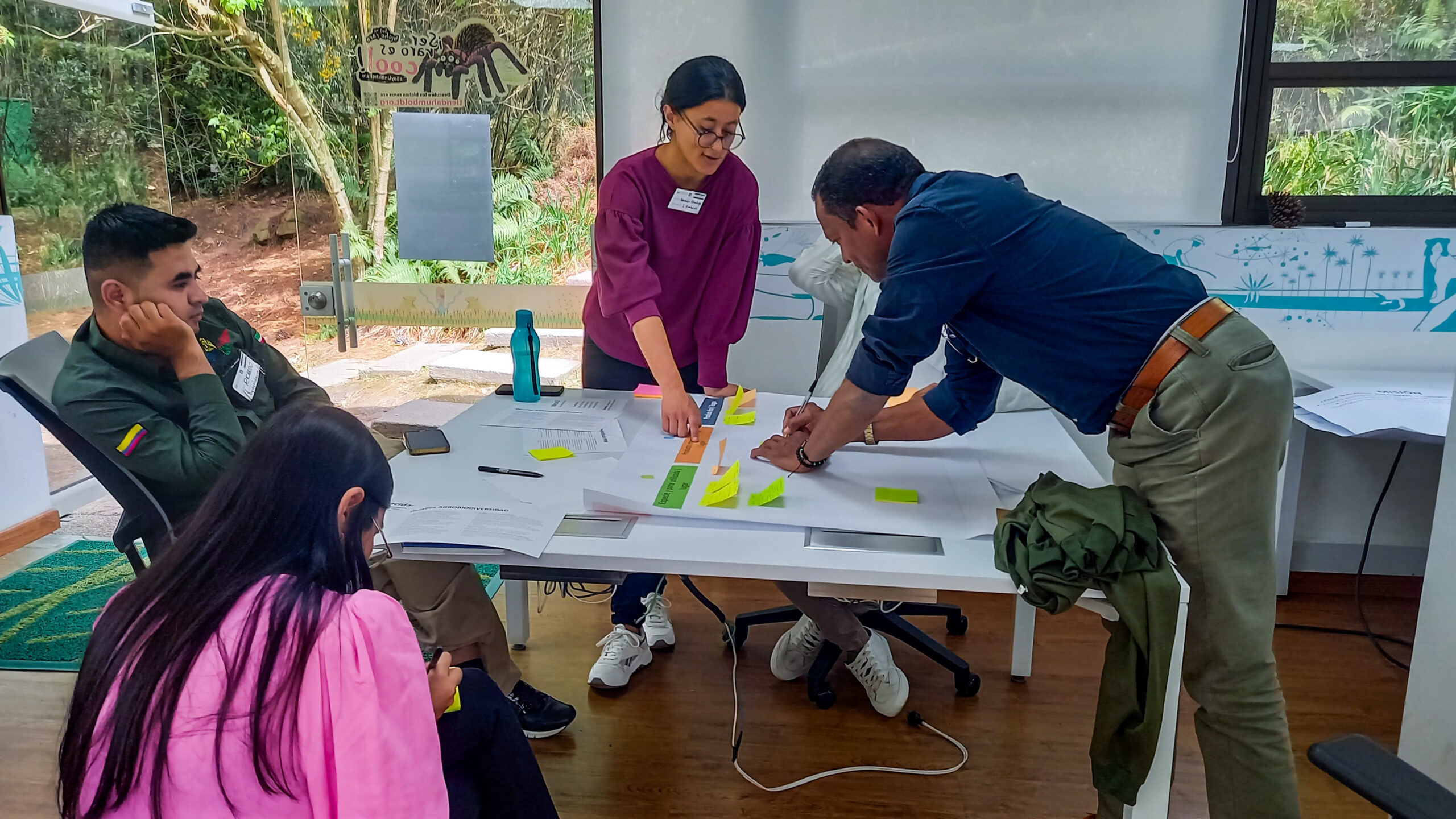
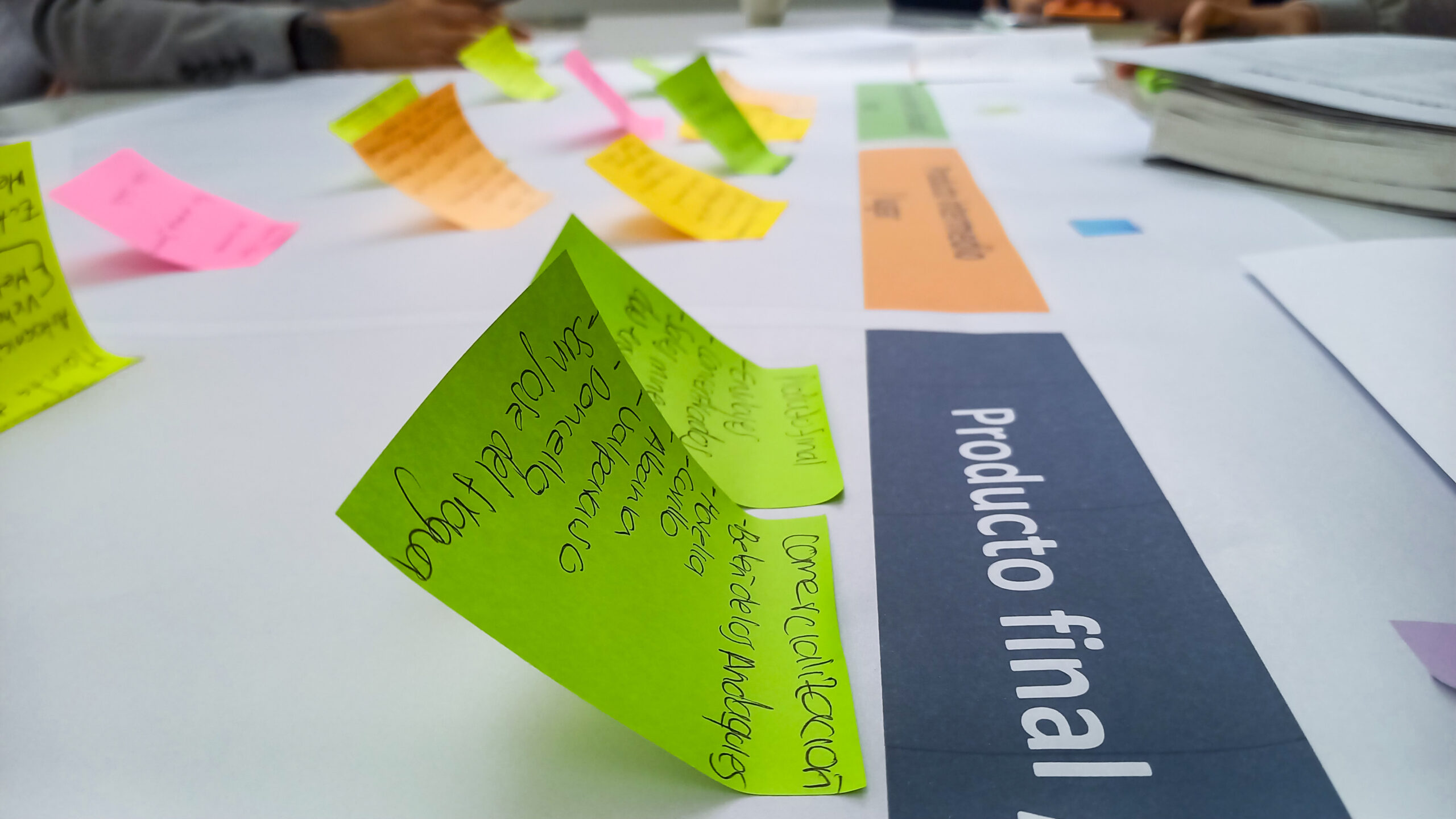
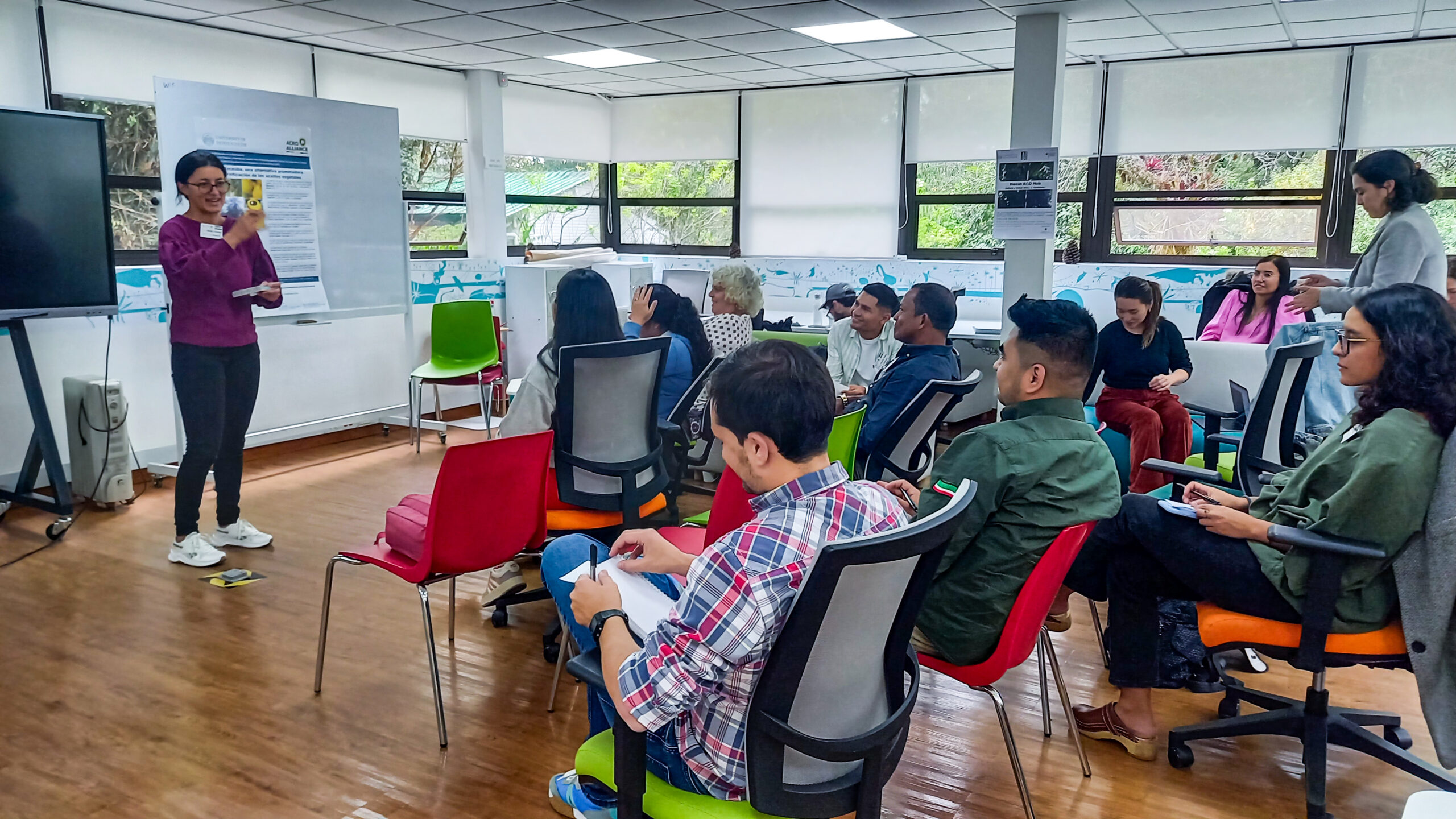
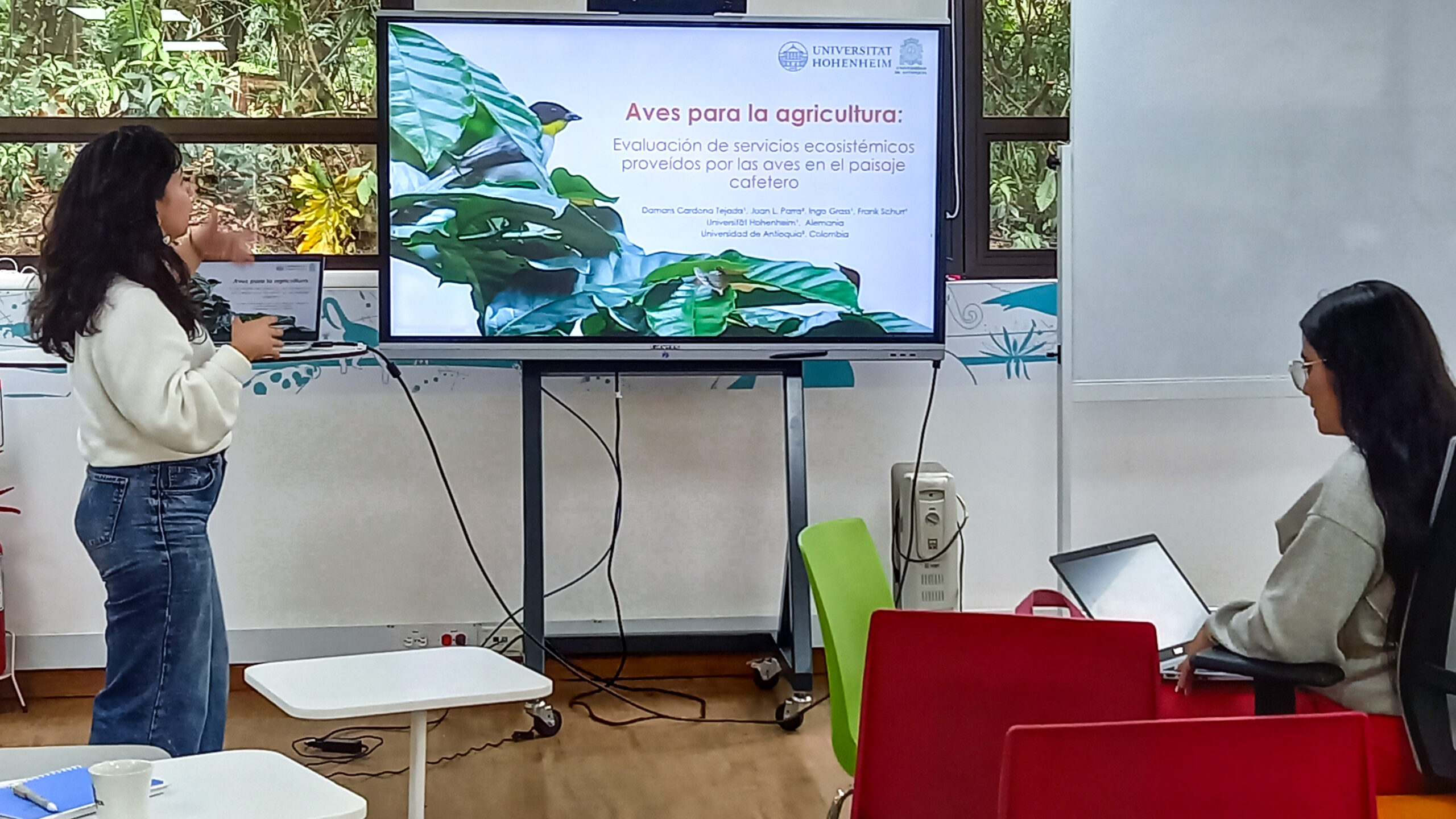

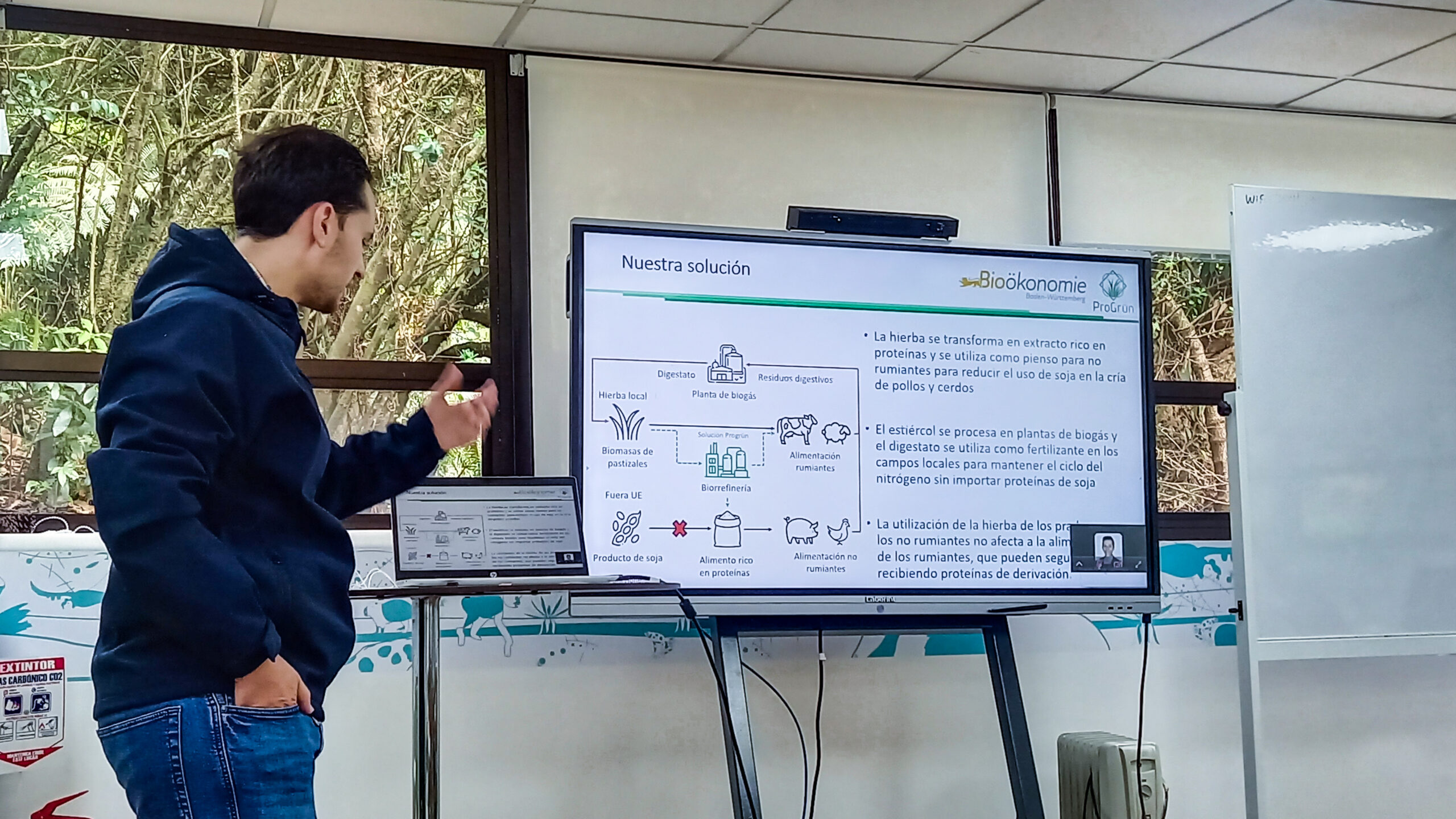
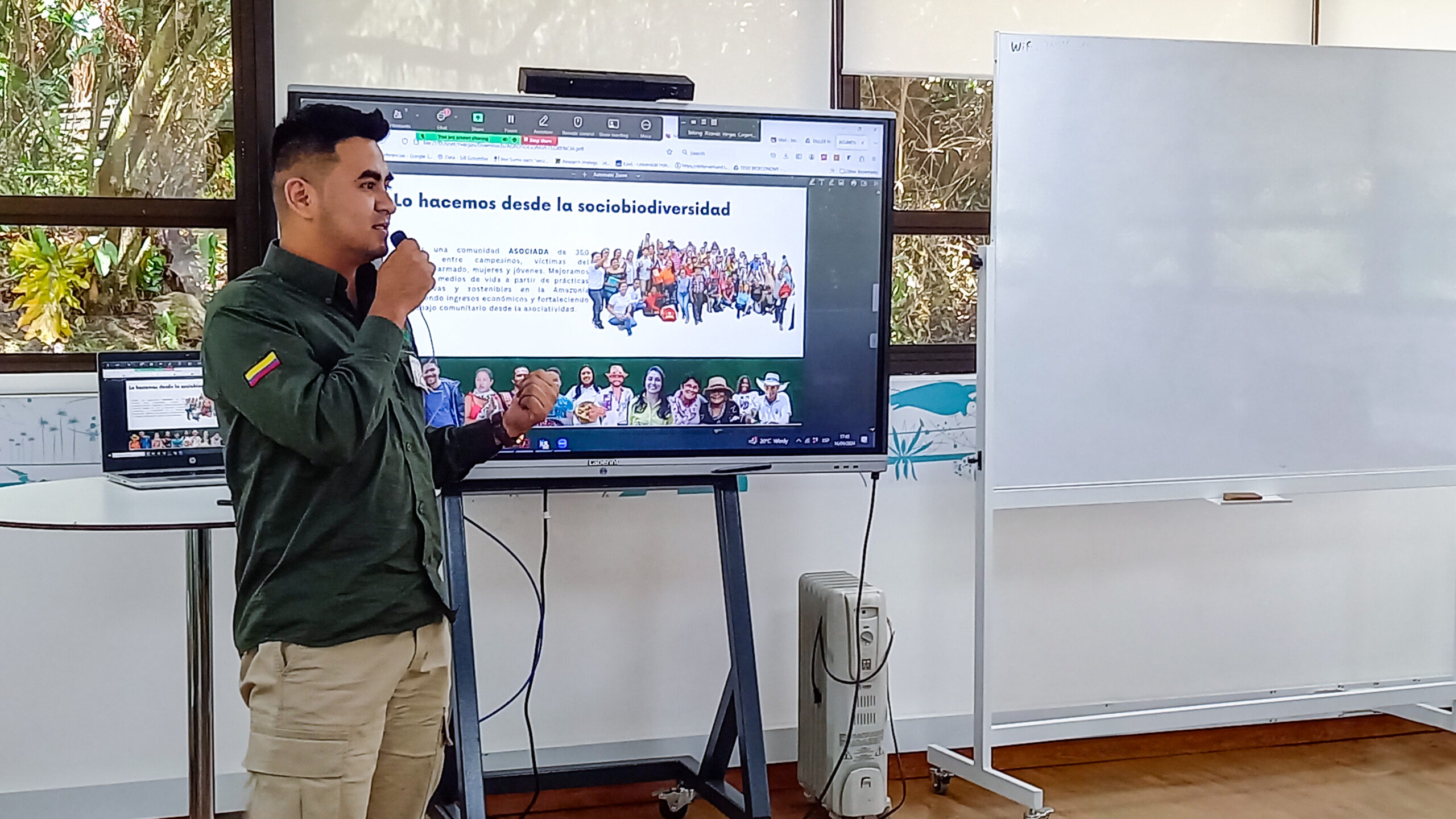
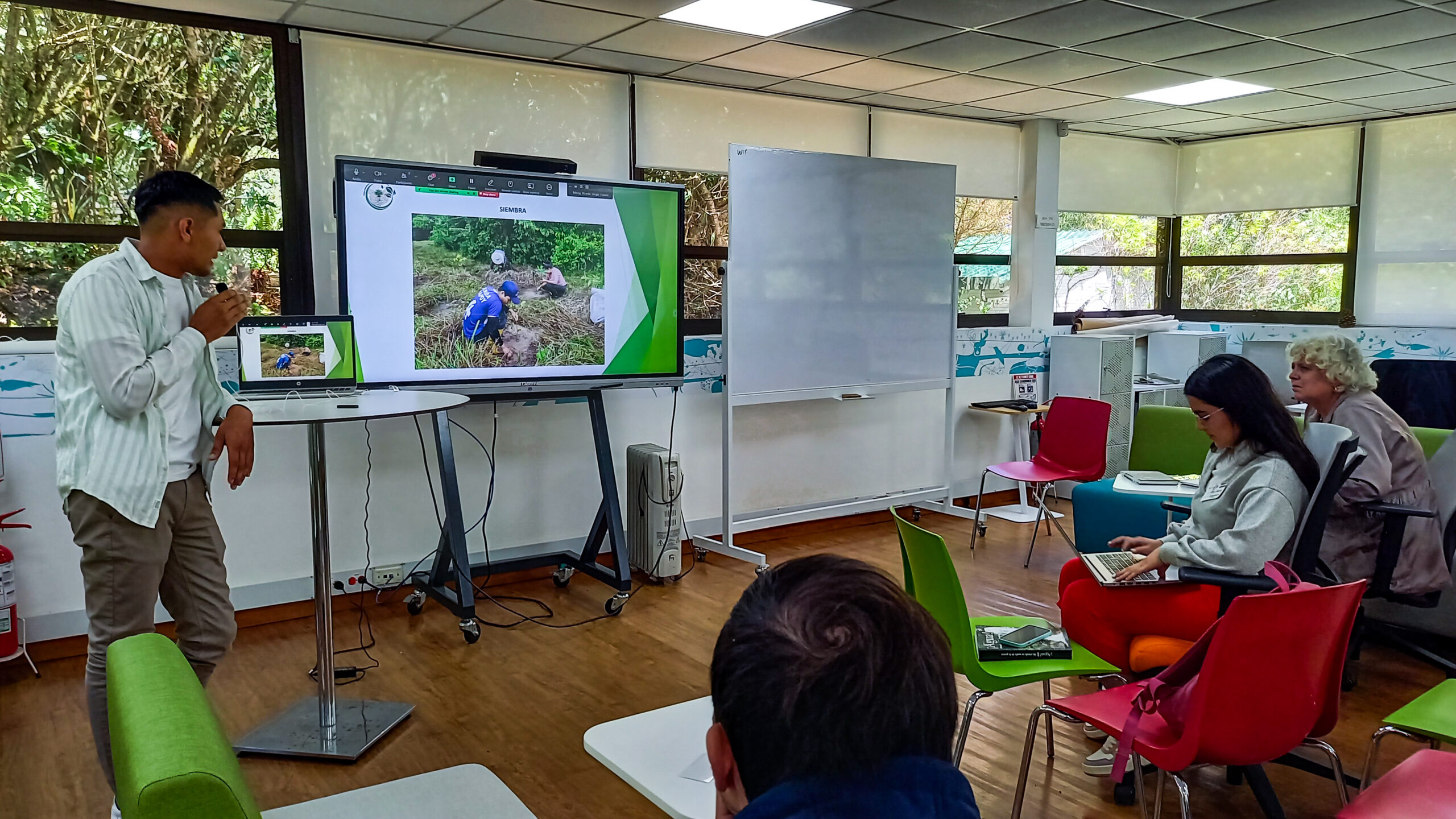
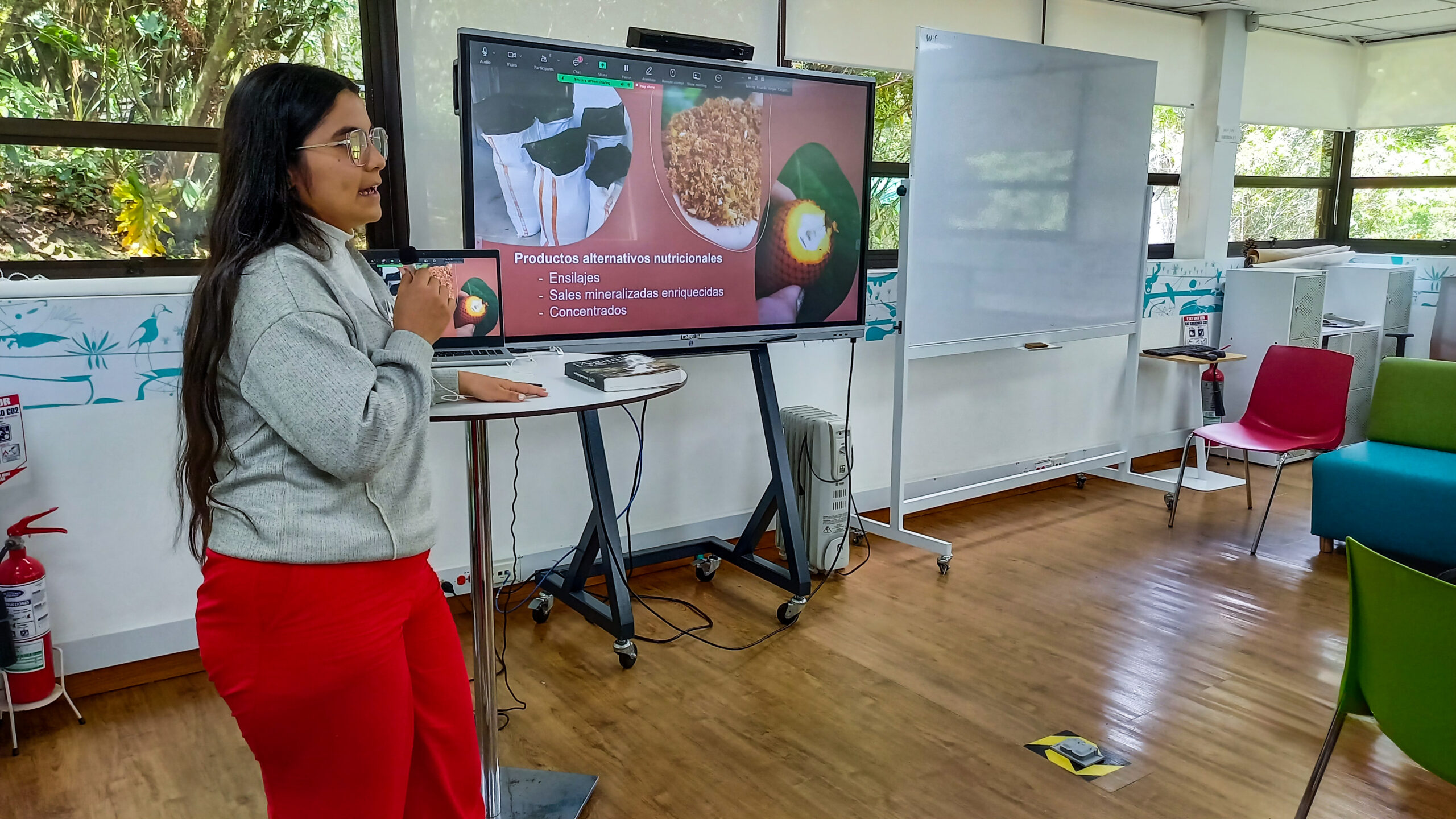
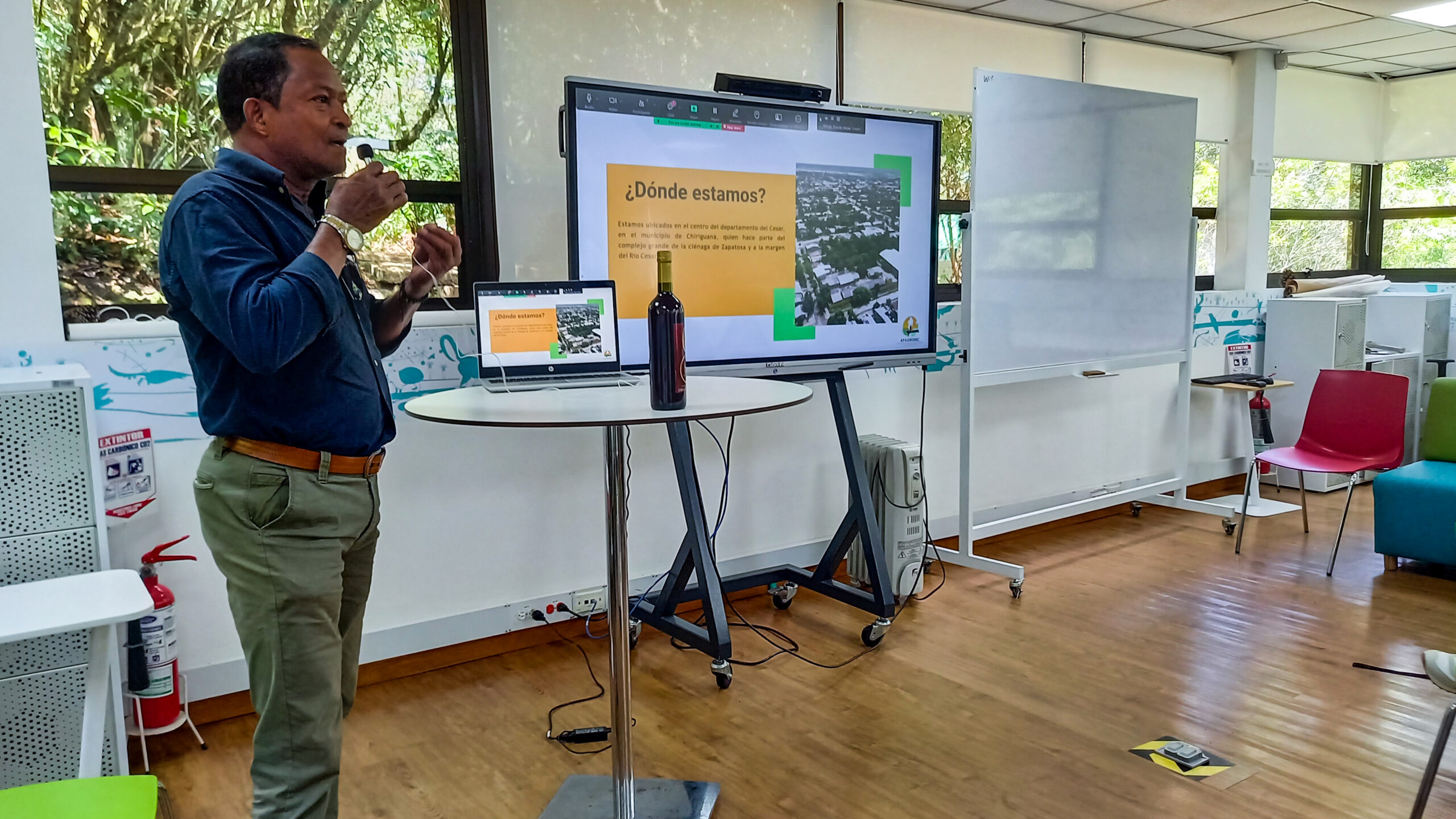
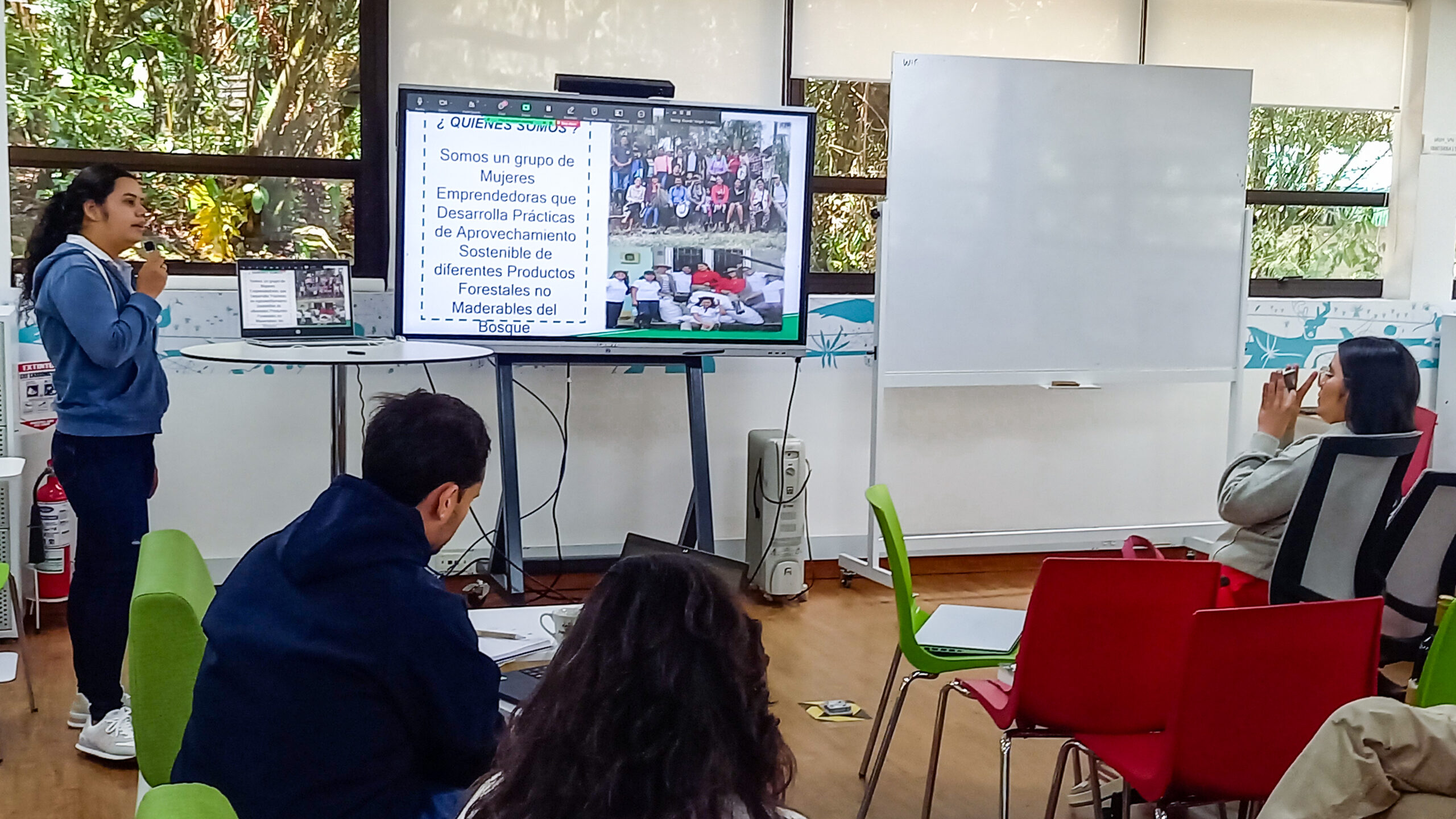
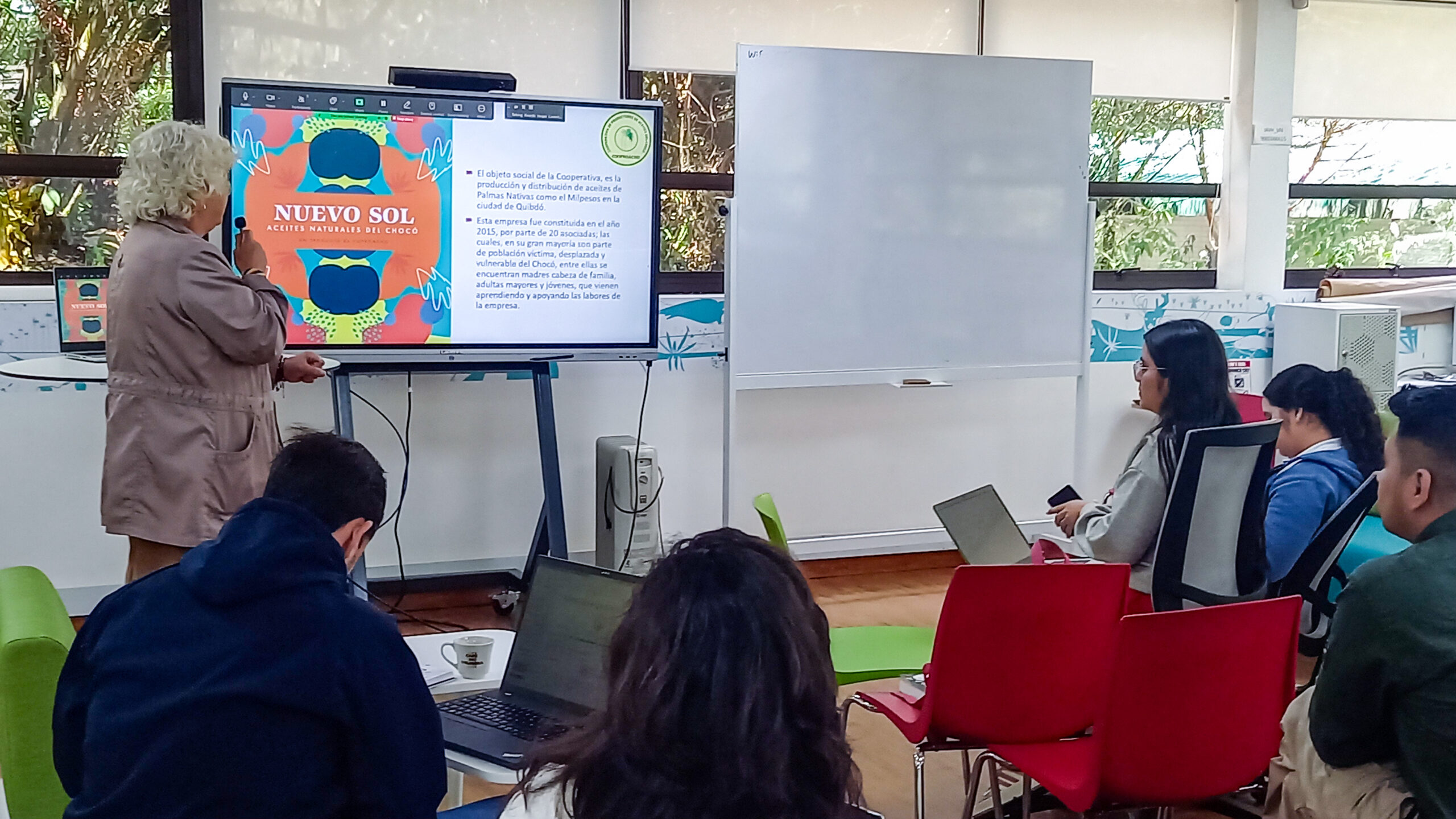
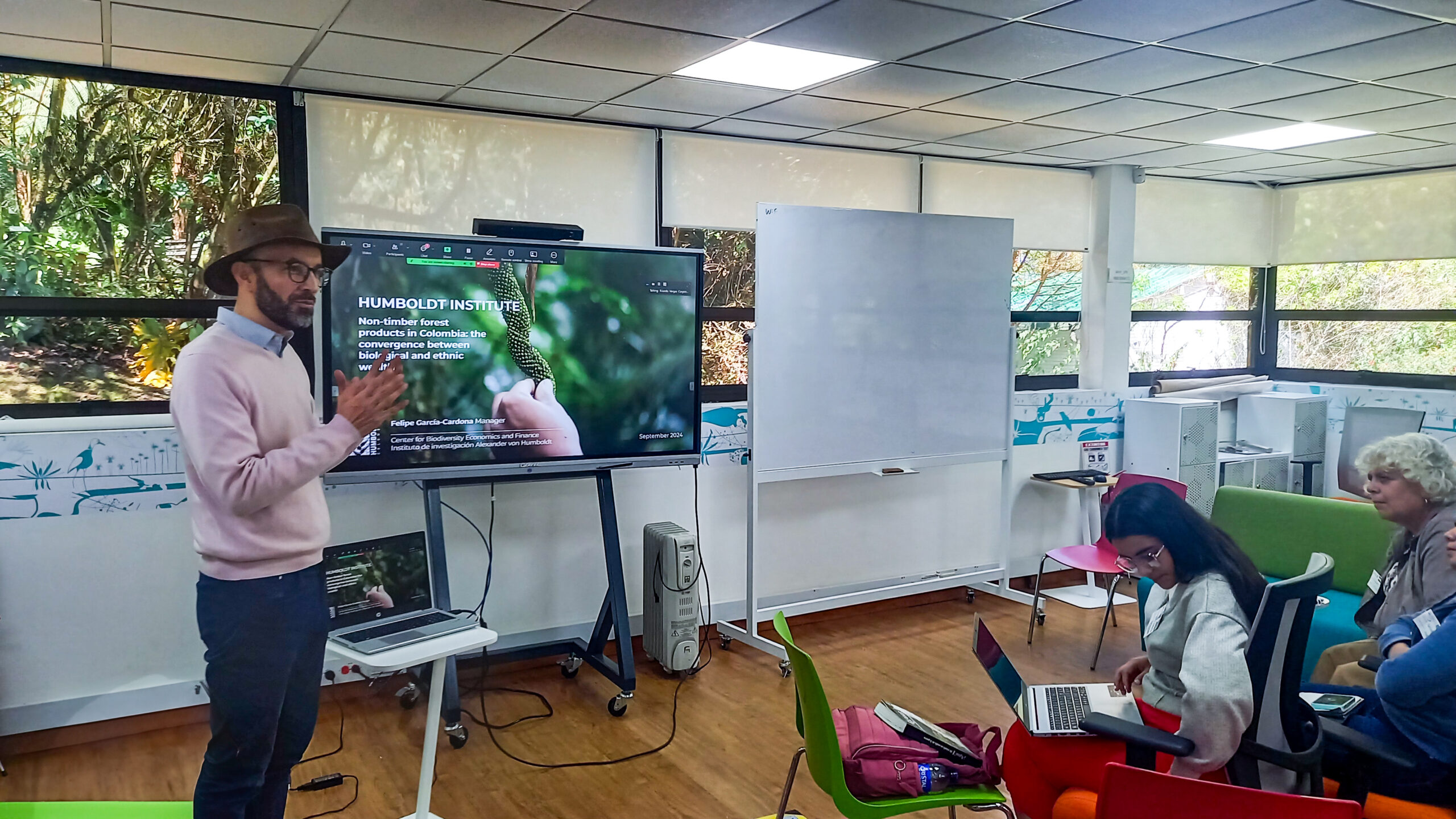
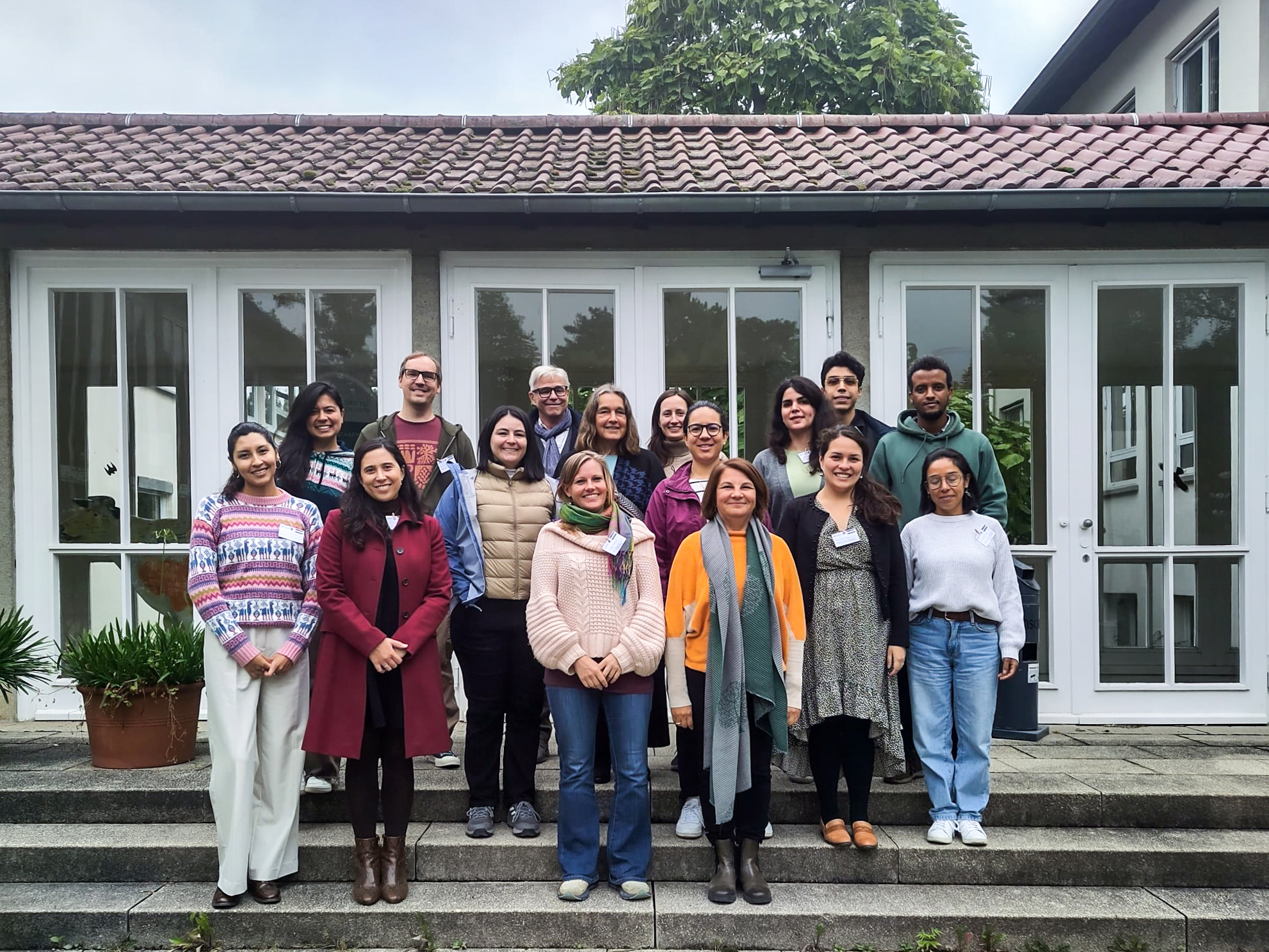
The workshop included different activities during the three days to obtain perspectives from practice and research, using participatory methodologies and through hybrid sessions to connect researchers in Germany with researchers and entrepreneurs in Colombia. The three days were oriented around the following points:
Day 1, 16 Sep:
Contextualization about bioeconomies of biodiversity and value chains from the territories
Day 2, 17 Sep:
Matching research and practice: identification of research lines based on challenges
Day 3, Sep 18:
Building a mission and vision for the NEXUS network
Participants
The Nexus workshop facilitated the networking of multiple actors from the research, entrepreneurial and institutional sectors related to biodiversity and agro-biodiversity bioeconomies and their value chains and webs.
The six participating initiatives represented multiple regions of Colombia: The Caribbean region with an initiative based in Chiriguaná, Cesar; the Pacific region, represented by a women-based organization located in Quibdó, Chocó; the Orinoco region, with the case of a community-based project based in Tame, Aráuca; and three organizations located in the department of Caquetá, in the Amazon region. Used plants by these initiatives include native plant species such as the corozo (Bactris guineensis), moriche (Mauritia flexuosa), milpesos (Oenocarpus bataua) and cacay (Caryodendron orinocense) for a variety of applications, as beverages, food, cosmetics, animal feed and restoration purposes.
The workshop was attended by young and senior researchers from institutions based in Colombia and Germany, who contributed their expertise in different areas of biodiversity and bioeconomy. Among the institutions represented were the Alexander von Humboldt Institute for Biological Resources, the University of Hohenheim, the University of Passau, the University of Los Llanos, the Universidad Distrital Francisco José de Caldas, the Colombian Agricultural Research Corporation (Agrosavia), the Wildlife Conservation Society, the Nature Conservancy, Wageningen University & Research, the University of Applied Sciences Weihenstephan-Triesdorf, The German Centre for Integrative Biodiversity Research (iDiv), the Helmholtz-Centre for Environmental Research, the Colombian-German Network for Science and Innovation (BioGeCo), the Colombian Ministry of Science, Technology and Innovation, the German Research Foundation (DFG) and the Colombian Embassy in Germany. Entrepreneurs and consultants at the intersection of bioeconomy and biodiversity based in Colombia also participated in the workshop. In Colombia, 28 persons participated in different workshop sessions, while in Germany 18 persons were involved.
Contextualization of biodiversity bioeconomies and value chains from the territories
Several biodiversity value chains and webs were described by the workshop participants in Bogota for wild biodiversity systems such as Non-Timber Forest Products and agro-biodiverse systems. This large network indicates the richness in terms of plants used, management and processing techniques, as well as uses, products and services in the territories:
Plant species
Wild Biodiversity
- Mauritia flexuosa, “Buriti”
- Euterpe precatoria, “wild Açaí”
- Bactris gasipaes, “chontaduro, peach palm”
- Bactris guineensis, “corozo”
- Oenocarpus bataua, “seje”
- Attalea maripa, “maripa palm”
- Brosimum alicastrum, “Guaimaro”
- Ceratonia siliqua, “Algarrobo”
- Porouqeiba sericea, “Uman”
- Carapa guianensis, “Carapa”
- Copaifera langsdorffii, “Capaiba”
- Astrocaryum cuatrecasanum, “Chuchana”
Agrobiodiversity
- Novel perennial crops in early-stage of domestication:
- Euterpe oleracea, “Açaí”
- Caryodendron orinocense, “Cacay”
- Vaccinium meridionale, “Agraz”
- Myrciaria dubia, “Camu Camu”
- Theobroma grandiflorum, “Copoazu”
- Plukenetia volubilis, “Sacha Inchi”
- Established perennial crops, introduced and native:
- Theobroma cacao, “Cocoa”
- Cocos nucifera, “Coconut”
Intermediate products
Fresh fruit
Pulp
Oils
Palm heart
Final products
Food
(Fresh and preserved fruit, Palm heart, Frozen pulp flour, Juice pulp, Lyophilized powder, Beverages, Ice cream, Cookies, Cakes, Jams, Fermented and dried seeds, Spicy sauce, Butter, Proteins)
Cosmetics
(e.g., oils)
Materials
(e.g., Building material, Handicrafts)
Feed and silage
Plant propagation material
Agricultural bioinputs
Connecting research and practice: identyfing lines of research based on the challenges of territorial initiatives
During the workshop and through a participatory approach and parallel working sessions between participants in Germany and Colombia, we jointly identified multiple challenges and lines of research, development and innovation along biodiversity chains and webs, from the supply of plants and their fruits to market access, including cross-cutting aspects such as governance, sustainability and traceability, both for wild biodiversity systems and agro-biodiversity systems. Know more about the challenges and lines of research of the NEXUS Network.
Creation of a mission and vision for the NEXUS network
Participants from Germany and Colombia outlined the mission and vision of NEXUS by answering some guiding questions. The ideas of both teams were contrasted and reviewed to identify similarities. Based on these similarities and with the support of artificial intelligence, we obtained initial Mission and Vision statements that were then revised and adapted by the participants in Colombia. Know more about the mission and vision of the NEXUS Network.
Wrap-up video
Aknowledgements
Our gratitude to the Kolumbientag organized by the Federal Ministry of Education and Research (Germany) for the opportunity to participate in the call for workshop proposals 2023, for prioritizing and funding the NEXUS workshop. We thank all participants of the Kolumbientag 2023 for supporting this idea. Thanks to the workshop organizers from the University of Hohenheim and the Alexander von Humboldt Biological Resources Research Institute for the good team work and making possible this event. Thanks to all participants who enthusiastically accepted the invitation to participate and contributed greatly to the workshop in Colombia and Germany. These three days were only made possible with a spirit of collaboration, inspiring cases, brilliant minds, diversity of worldviews and plants all together.

